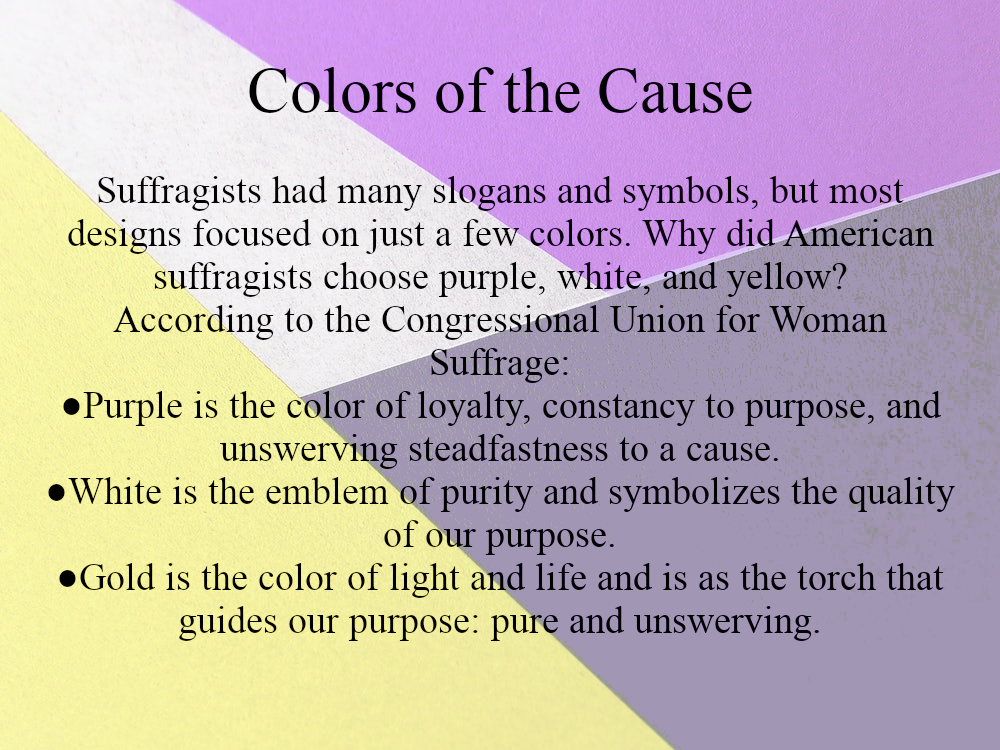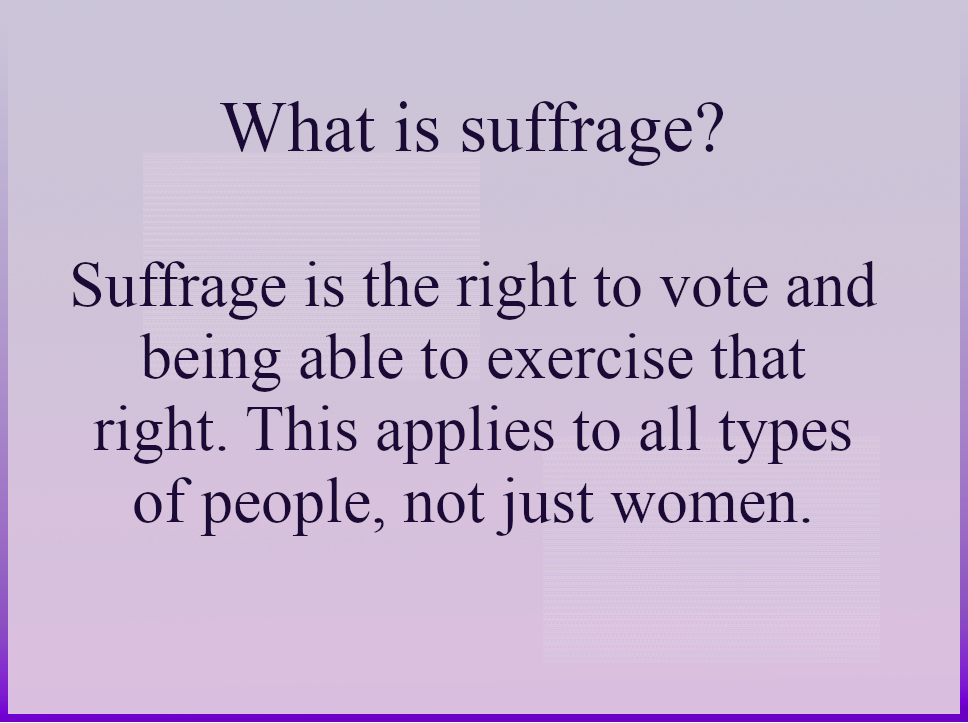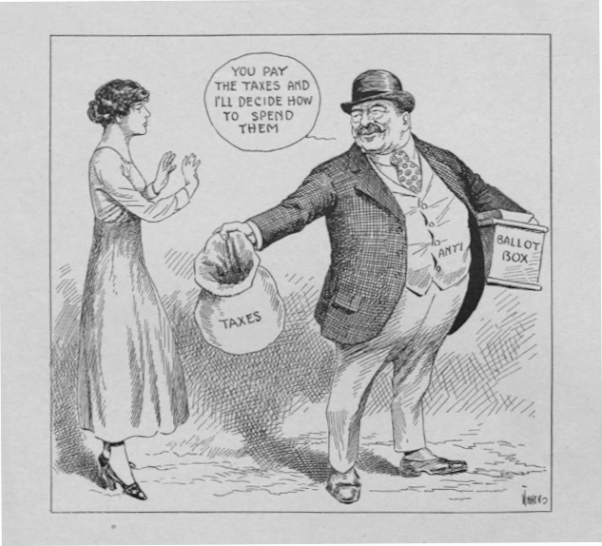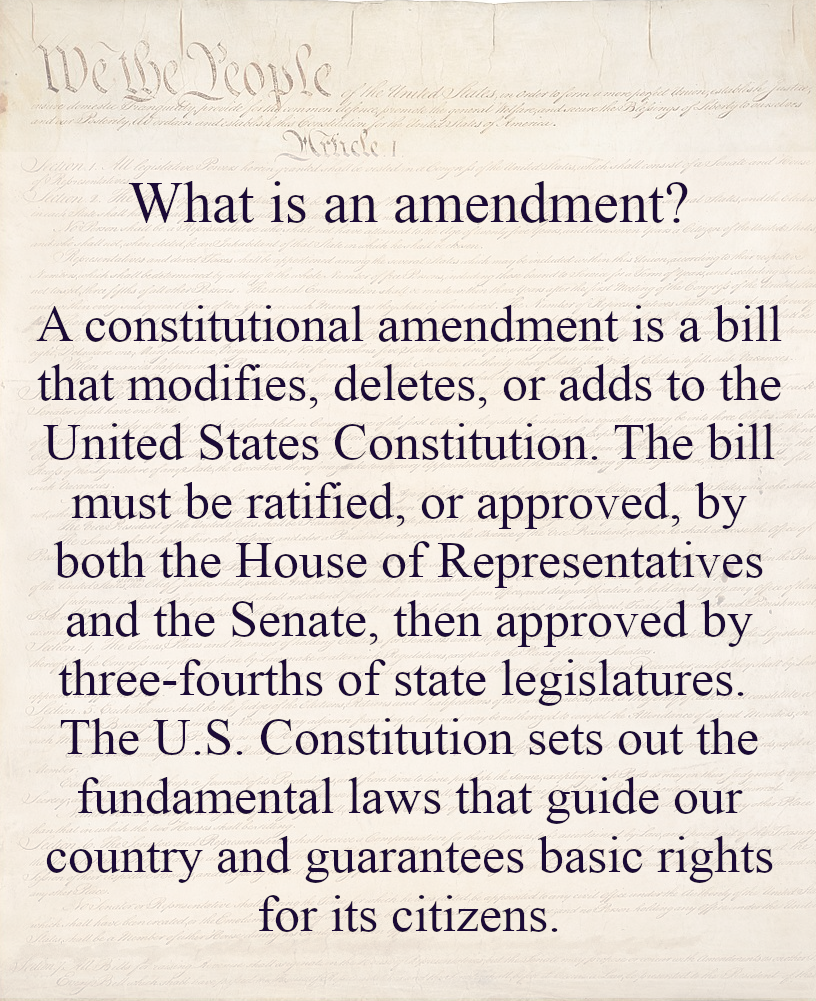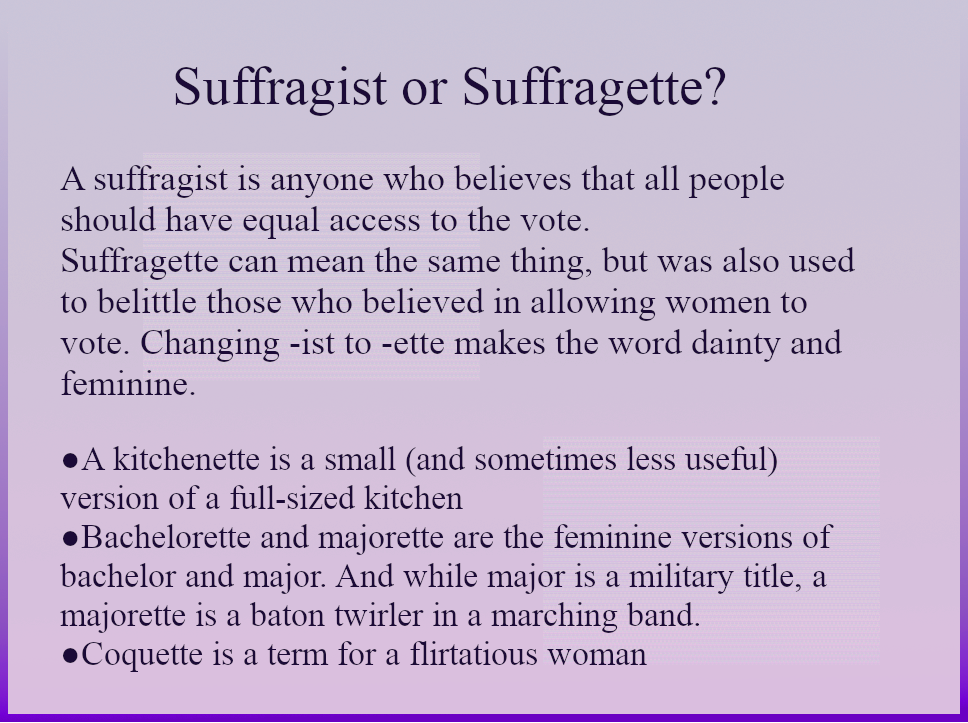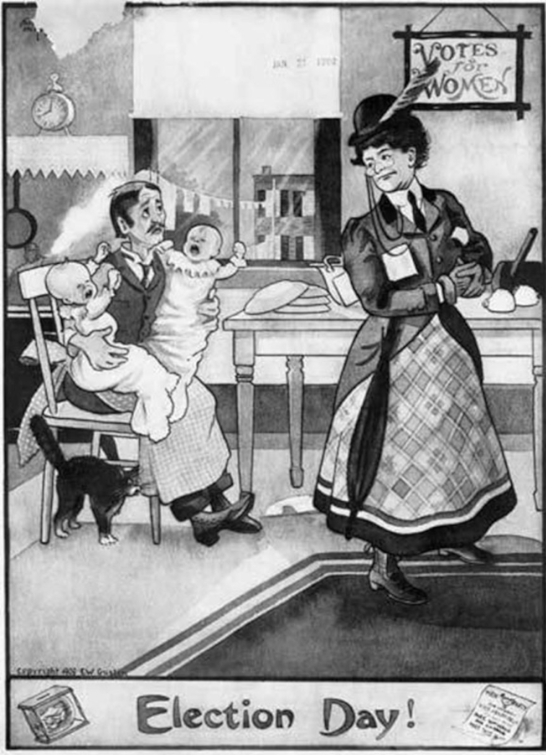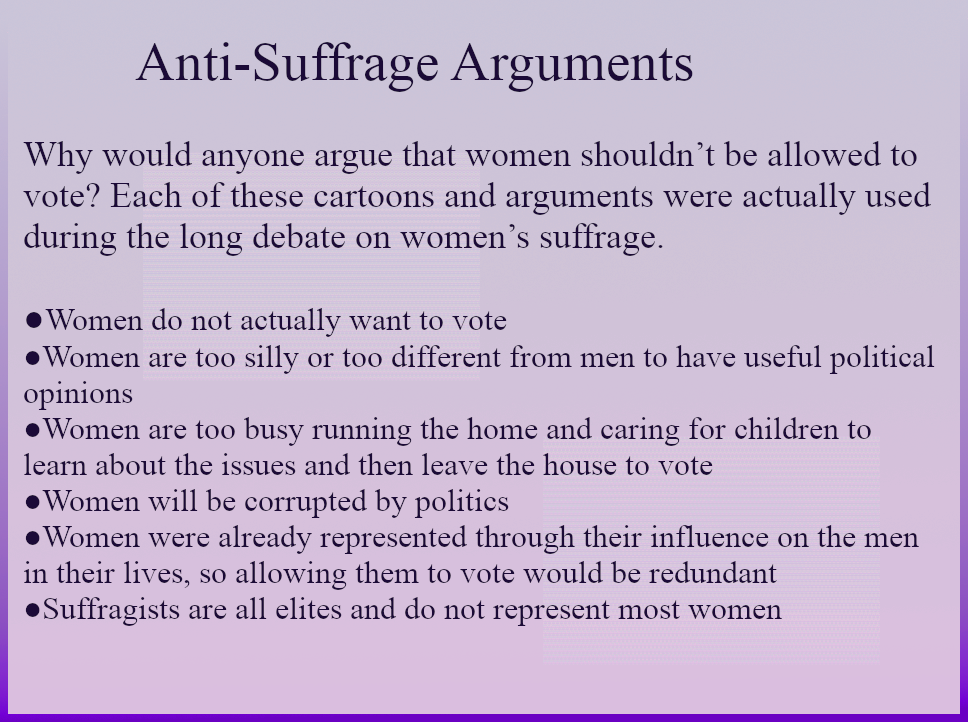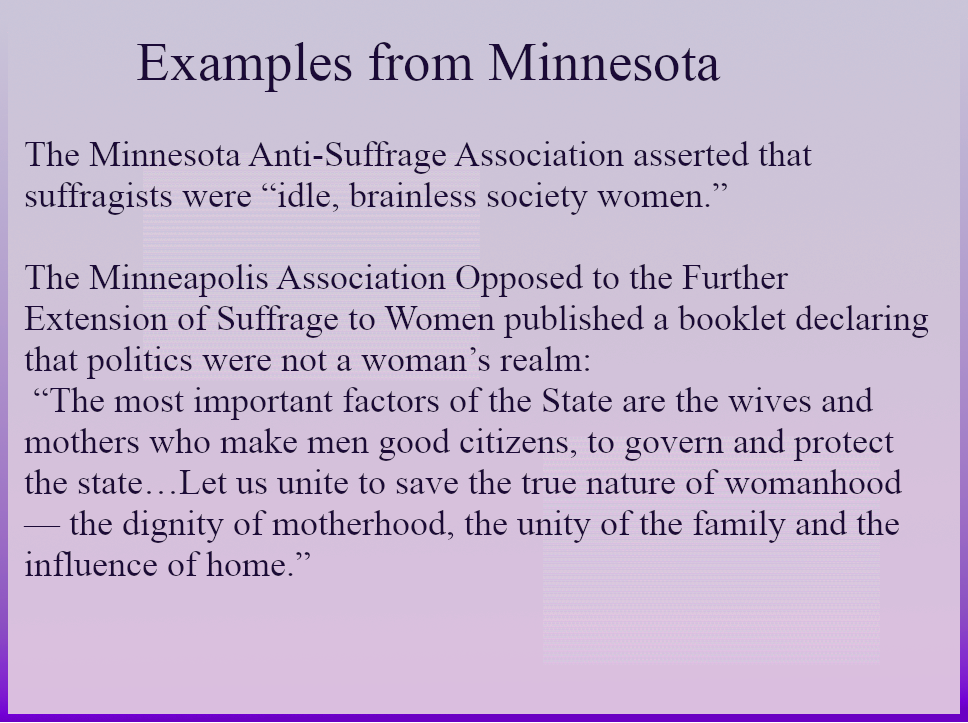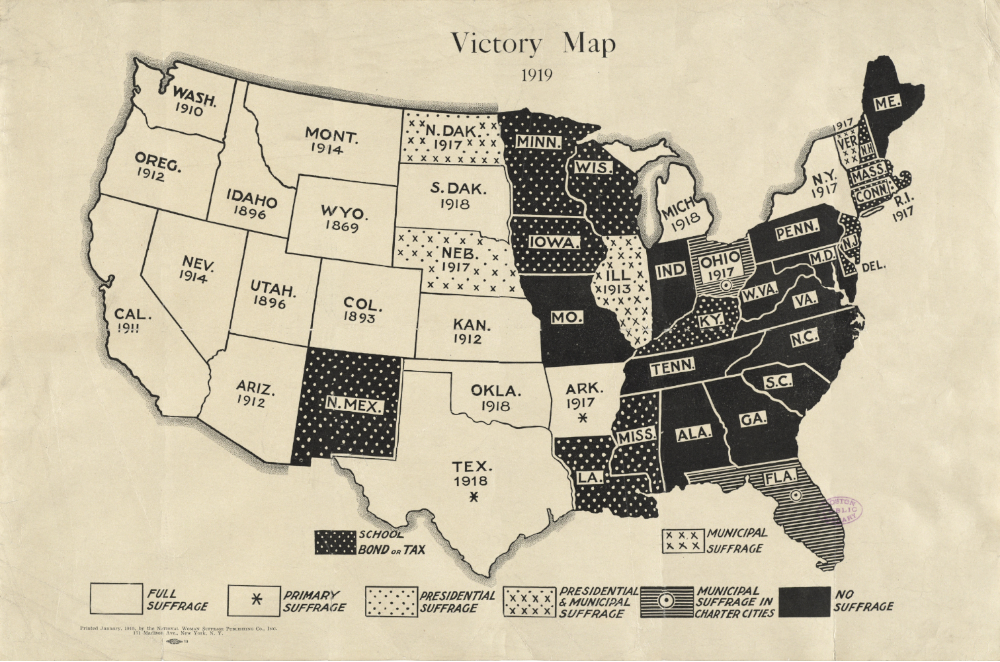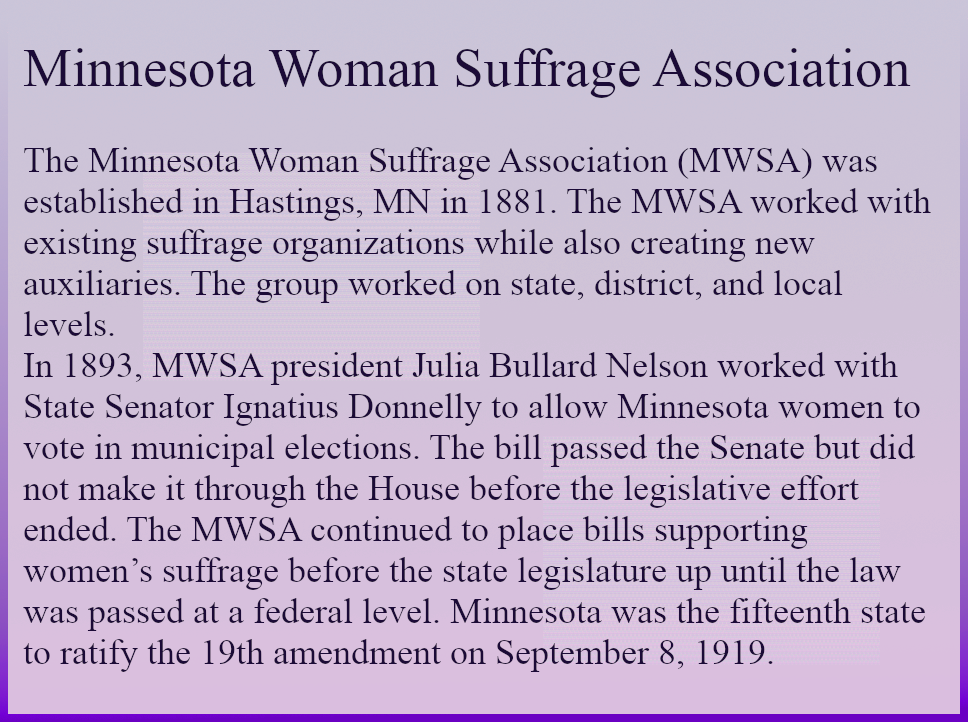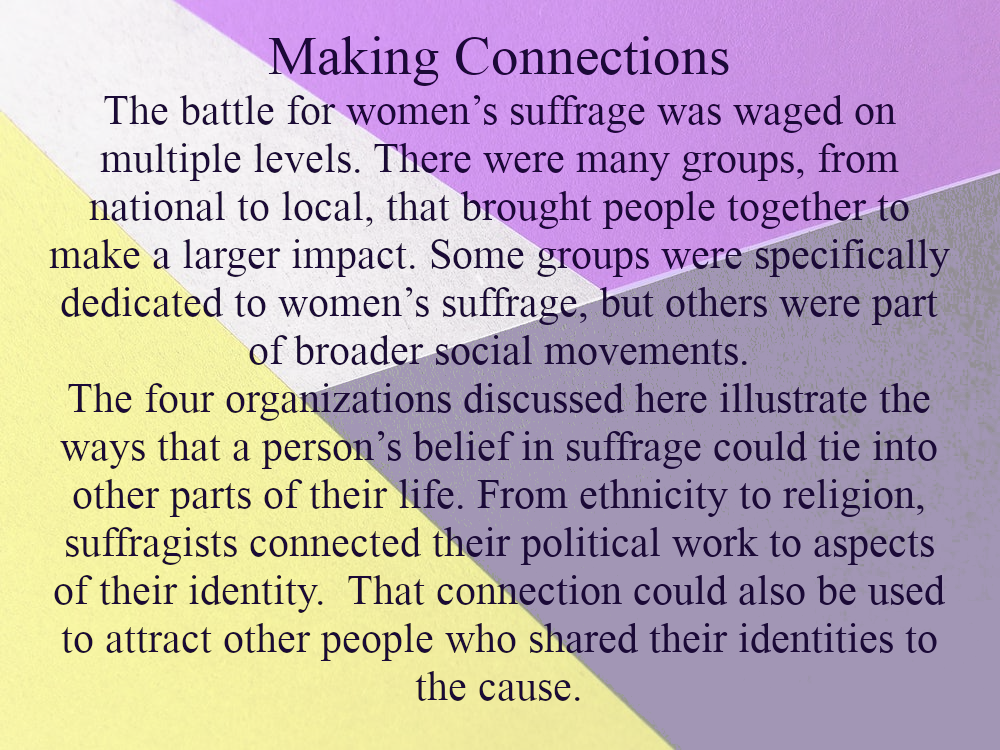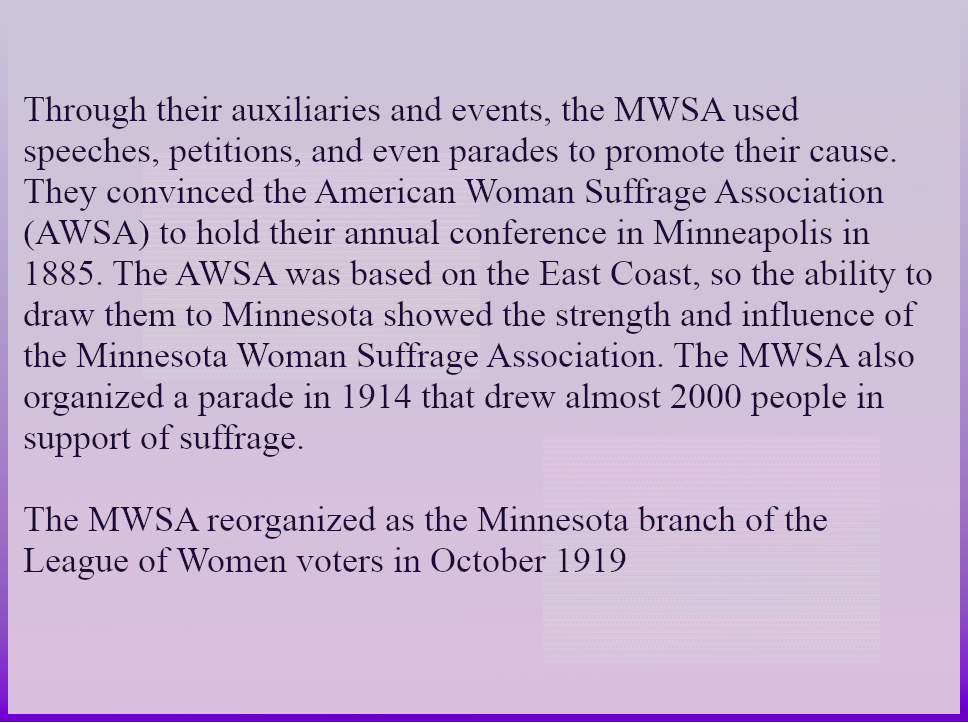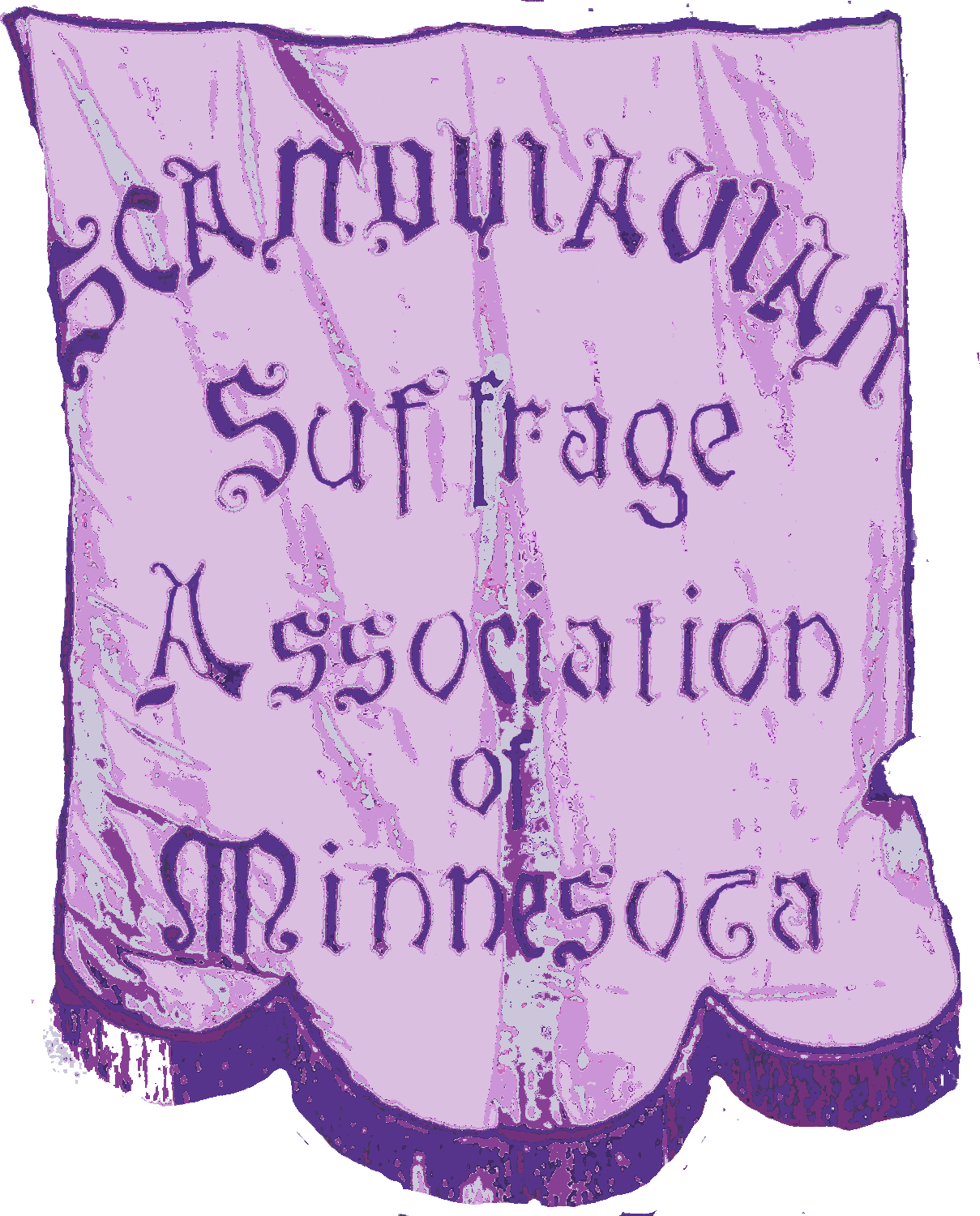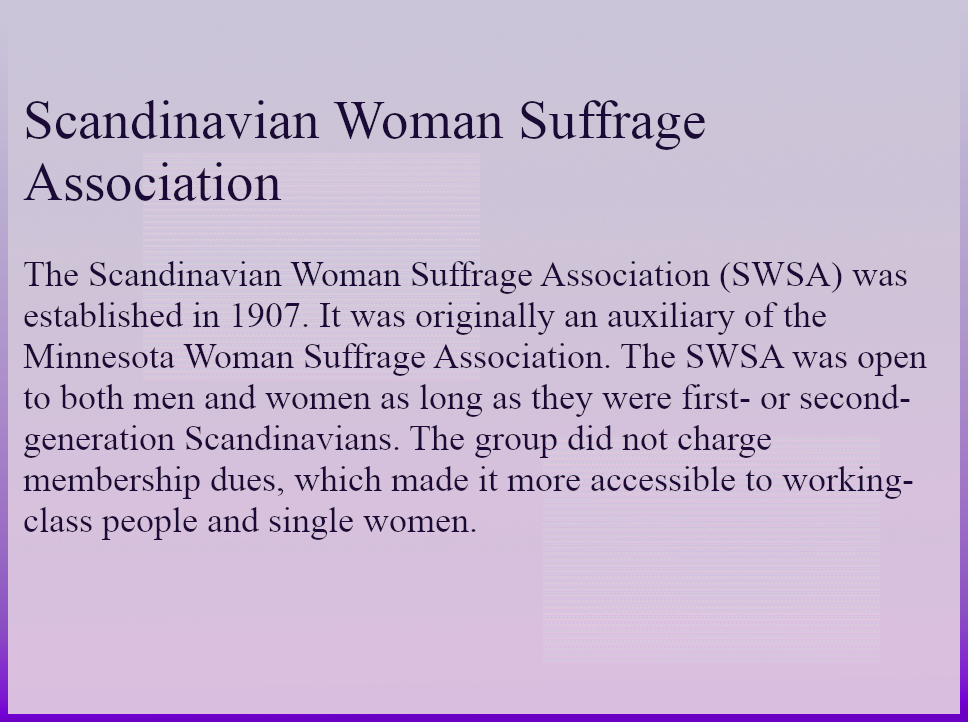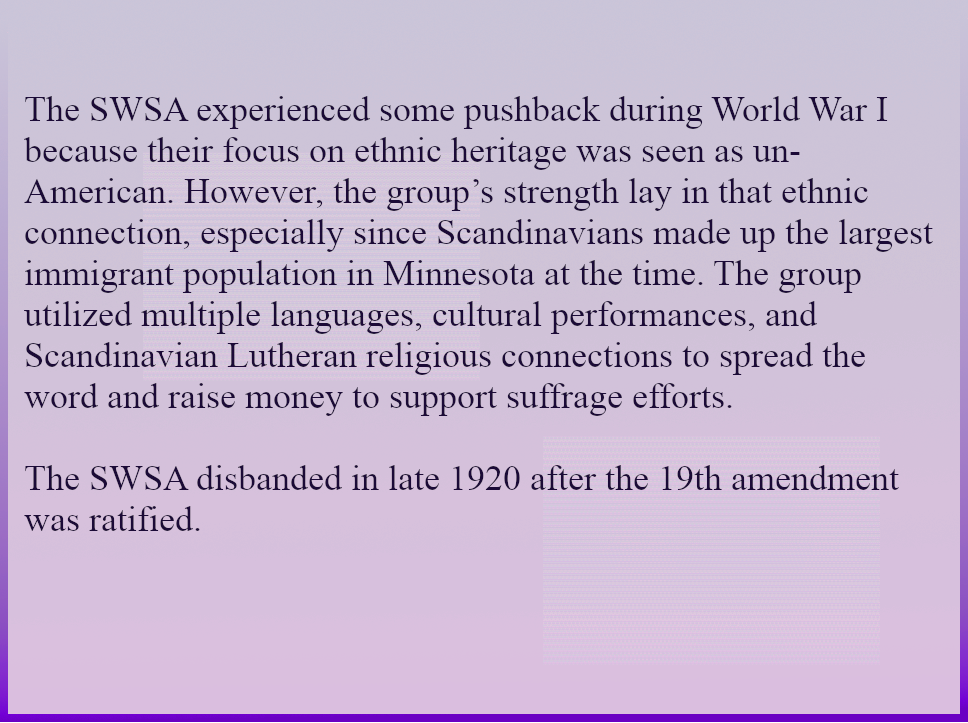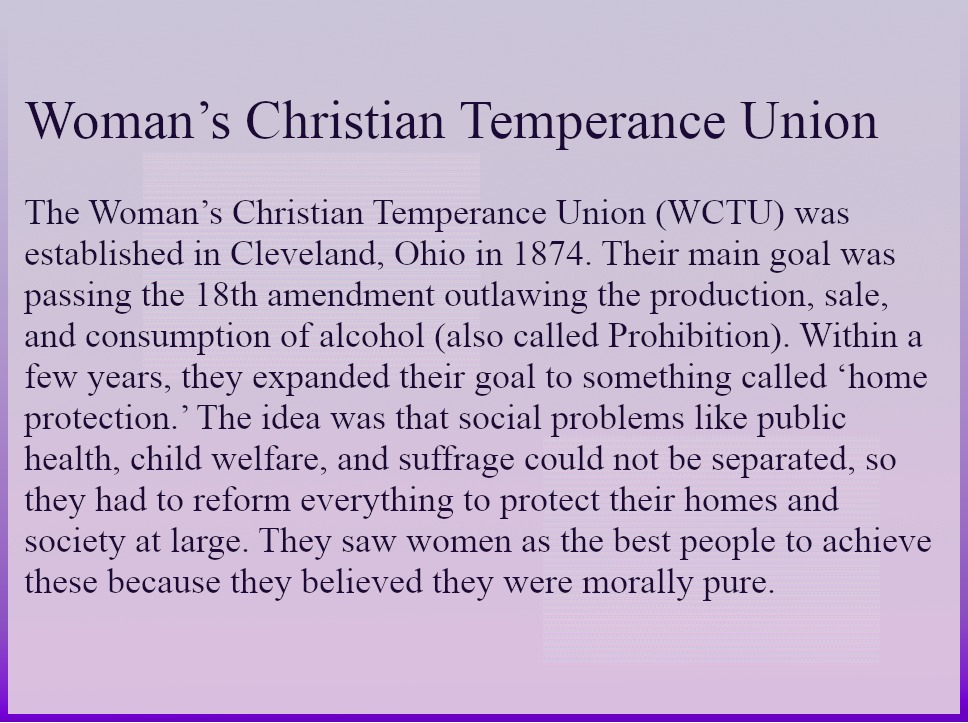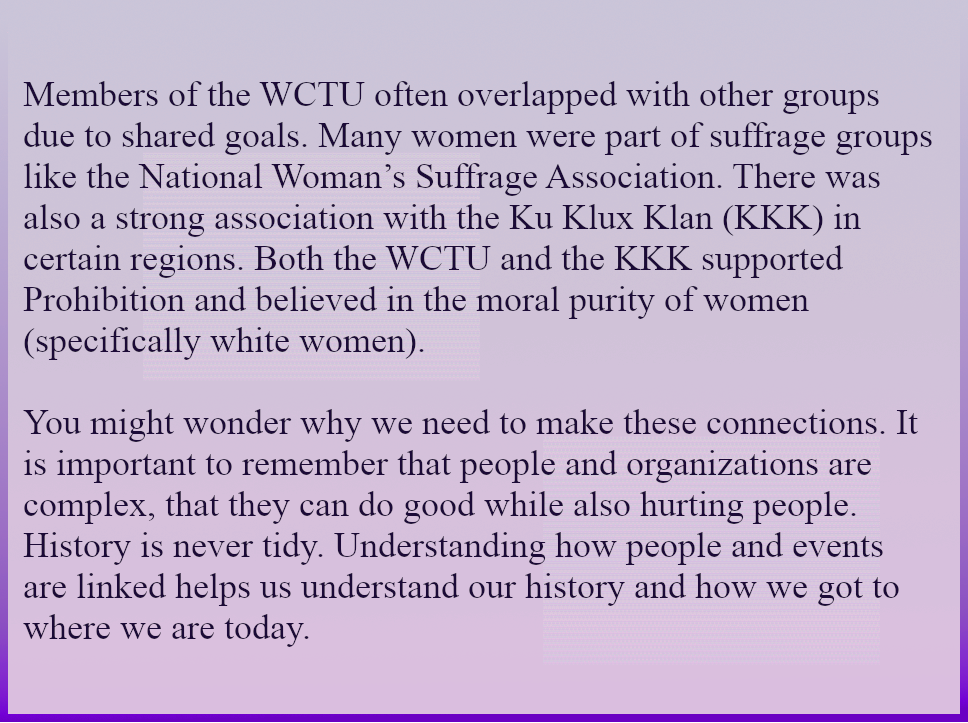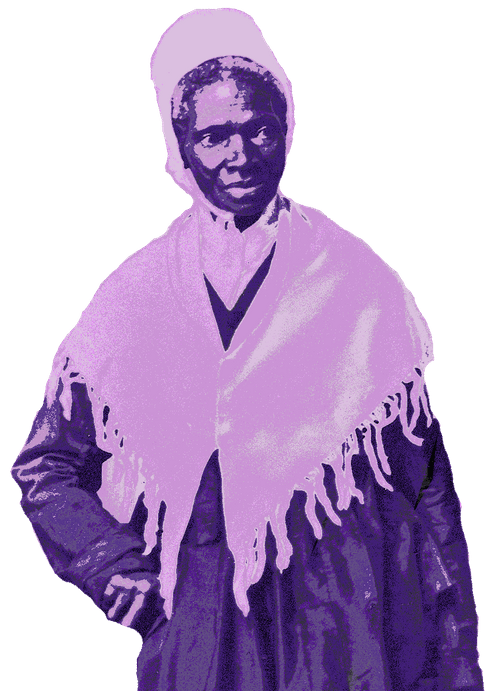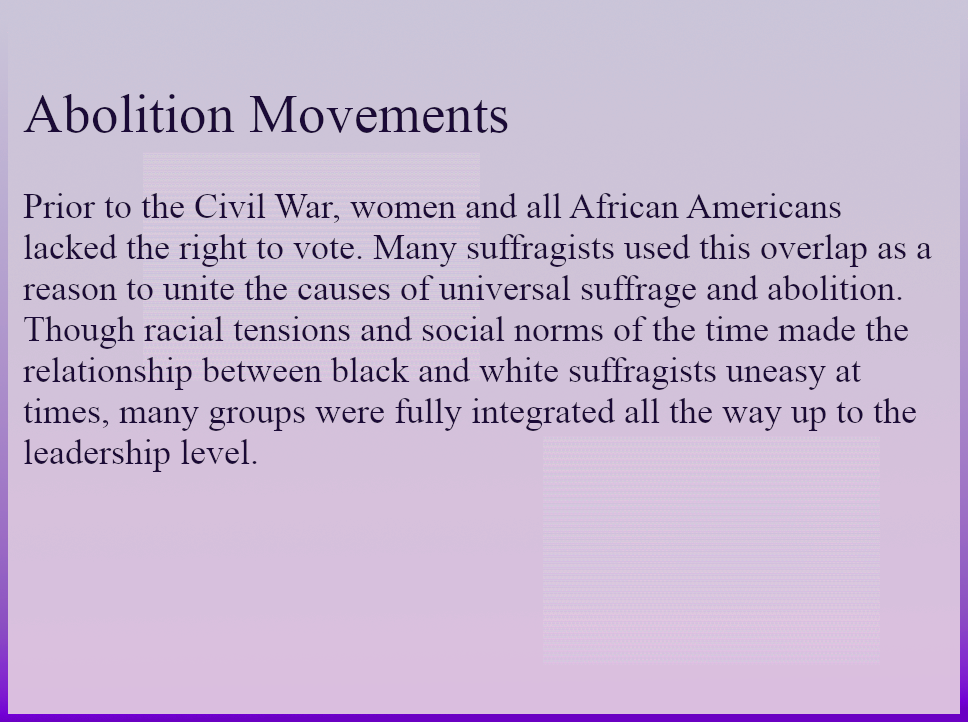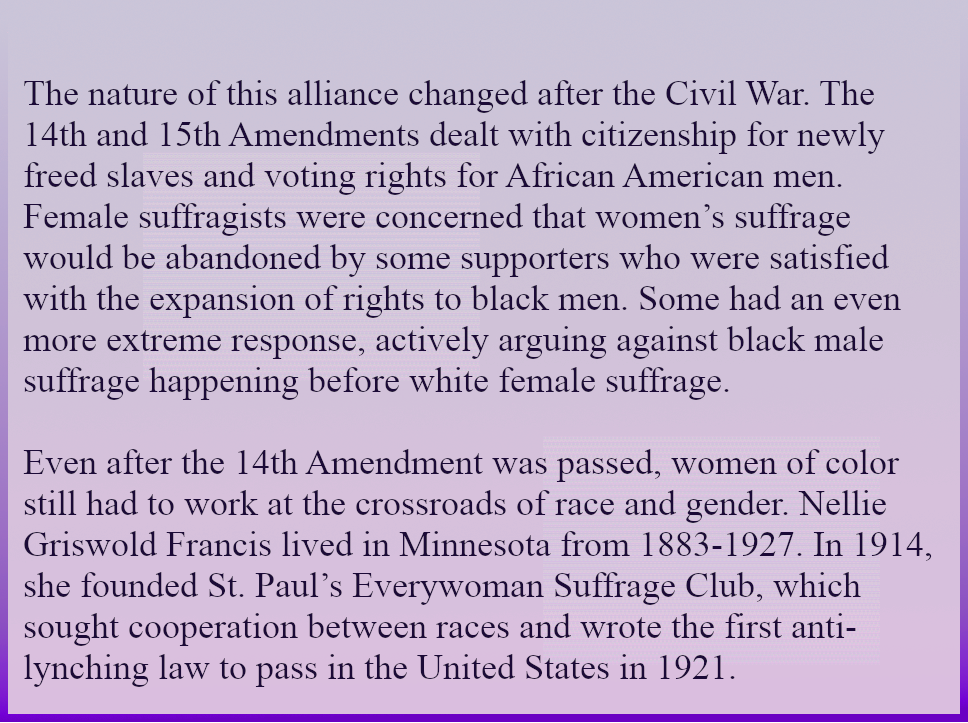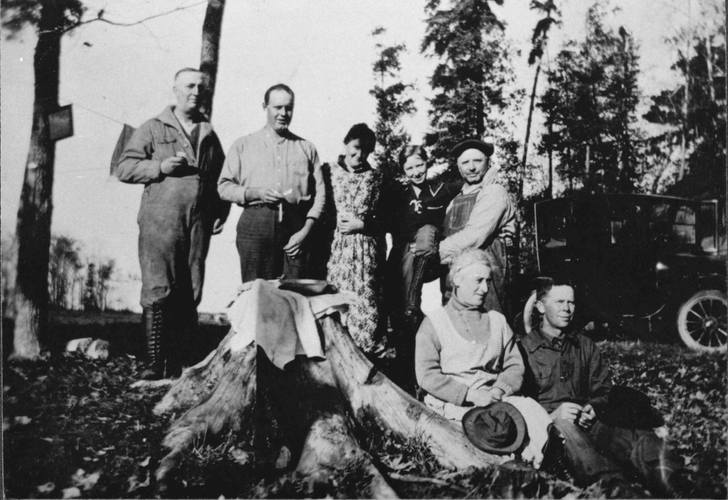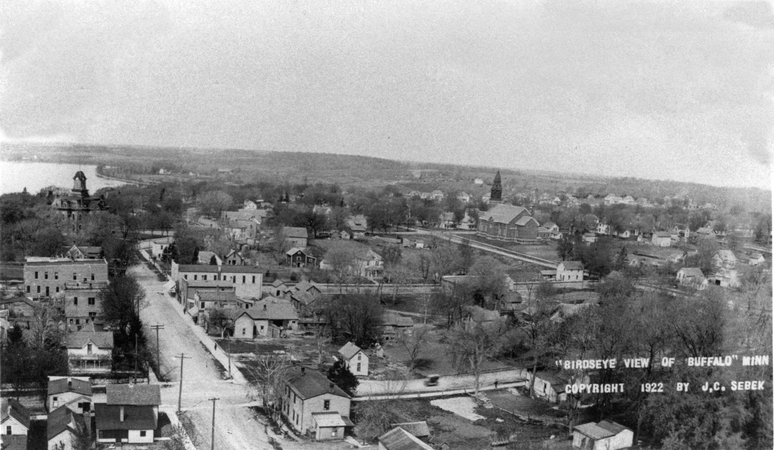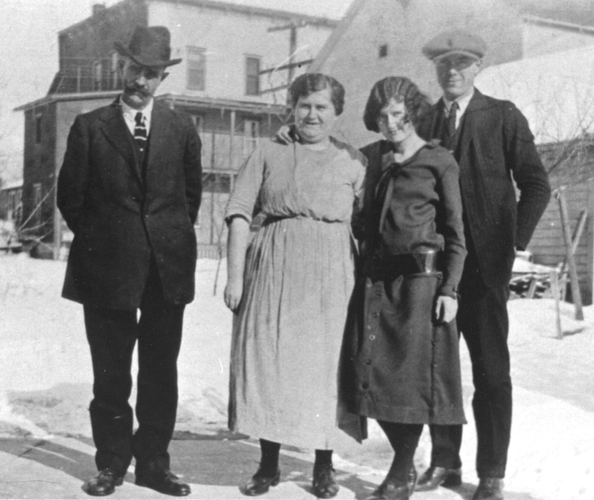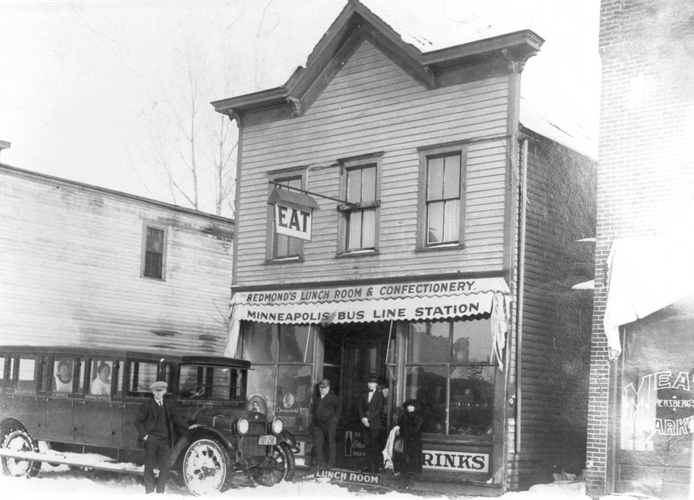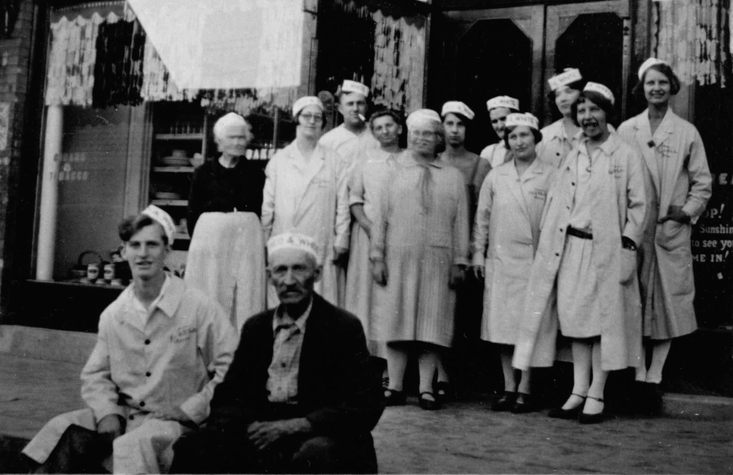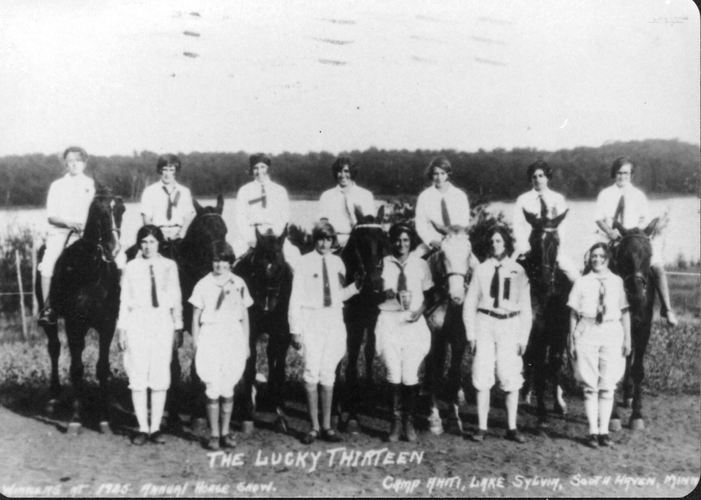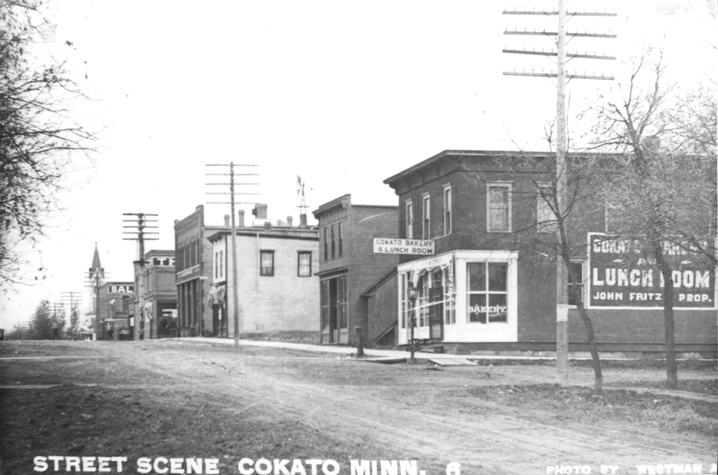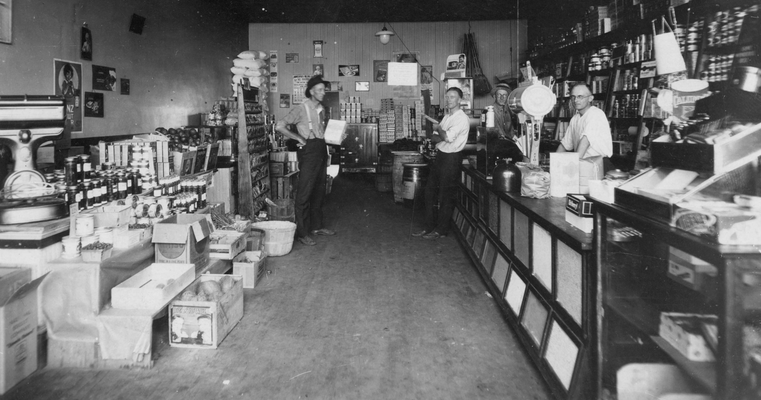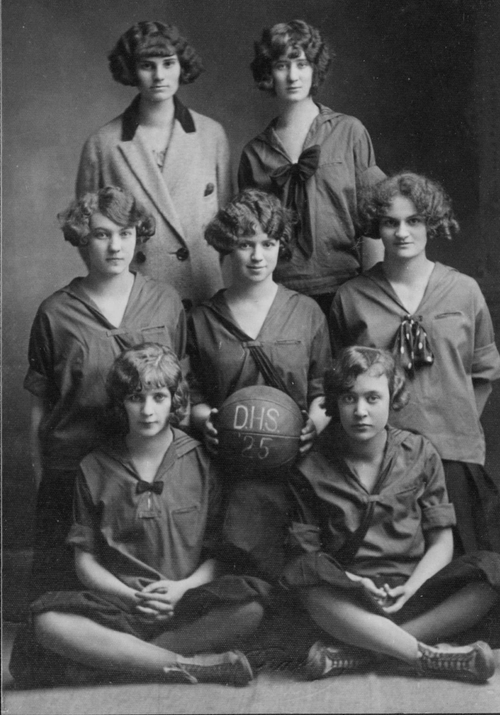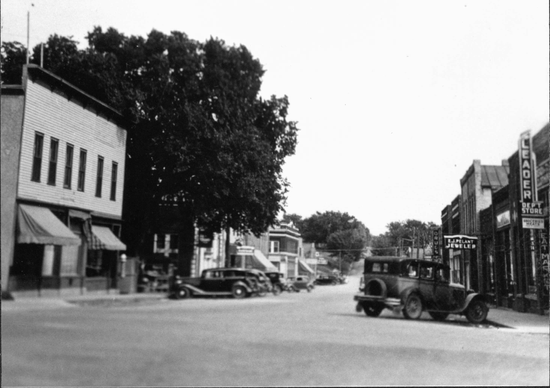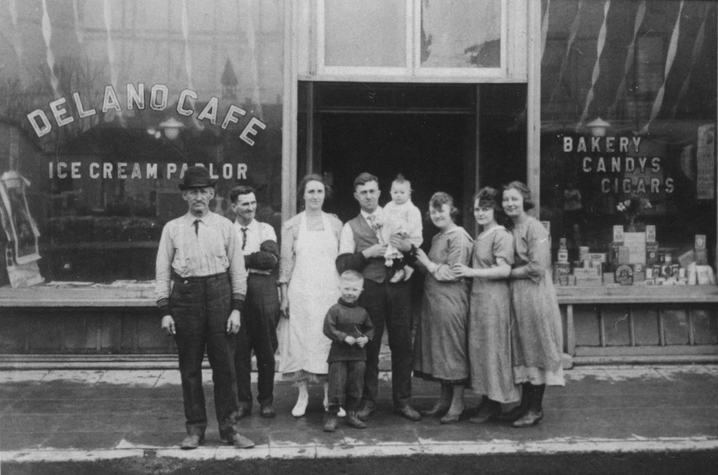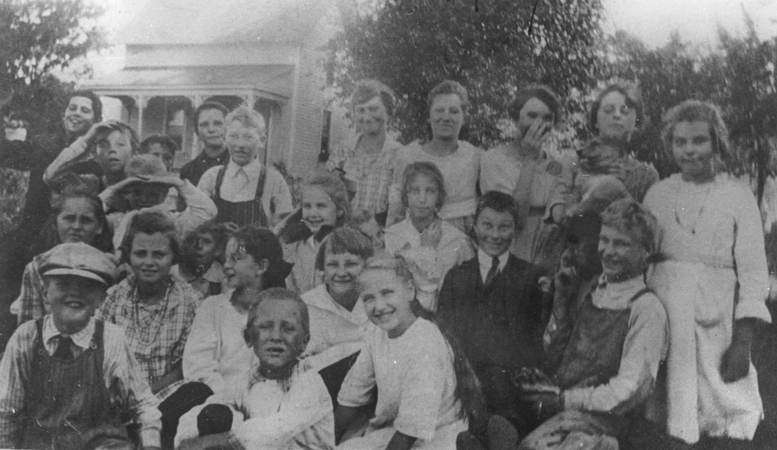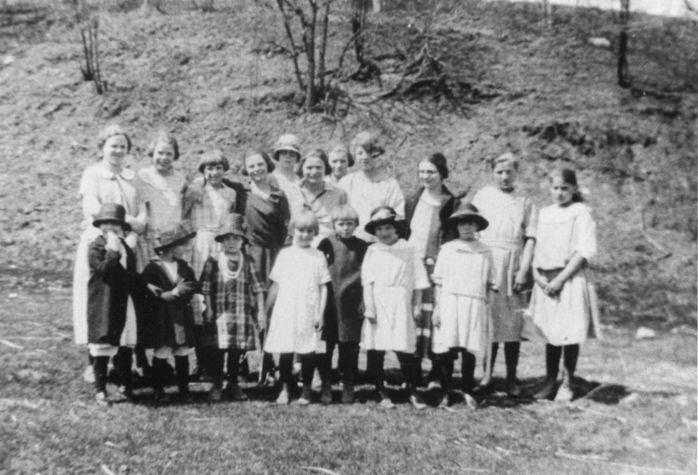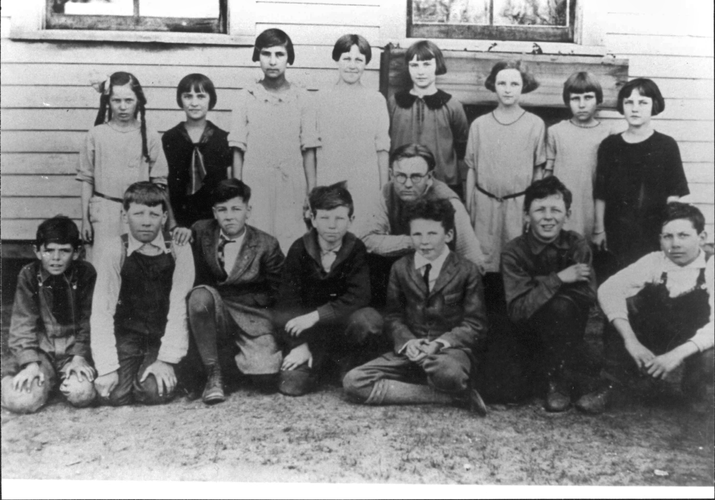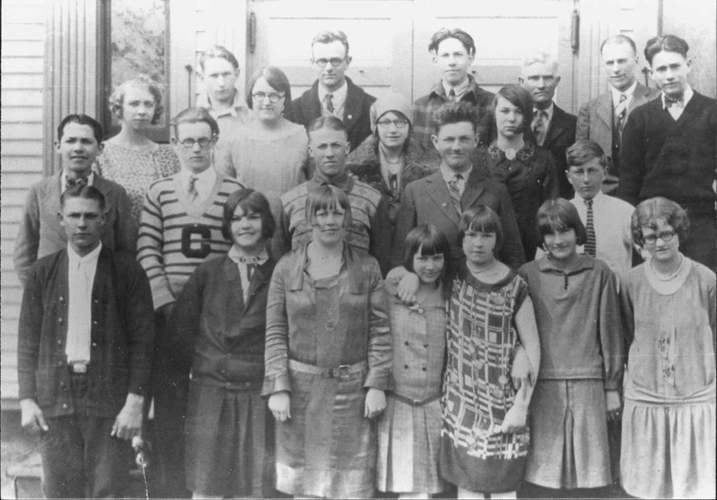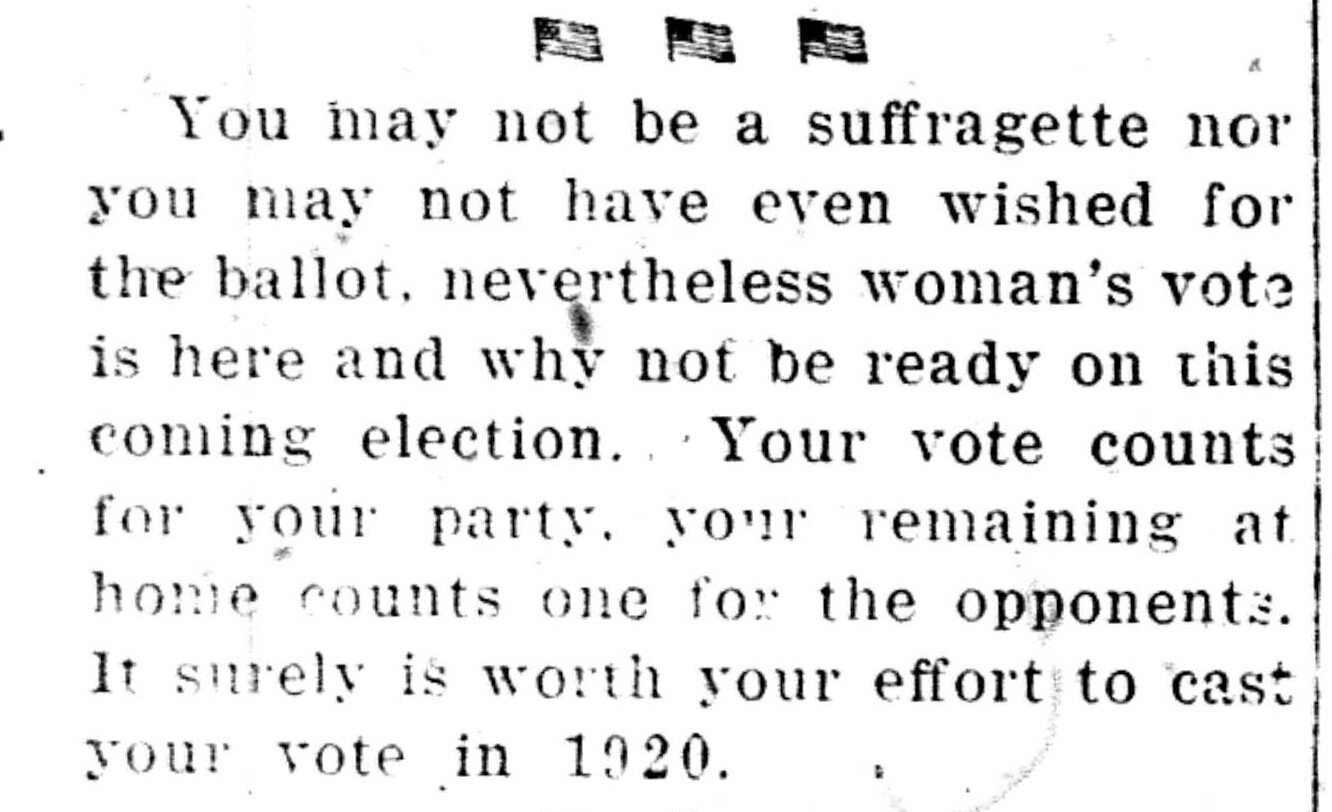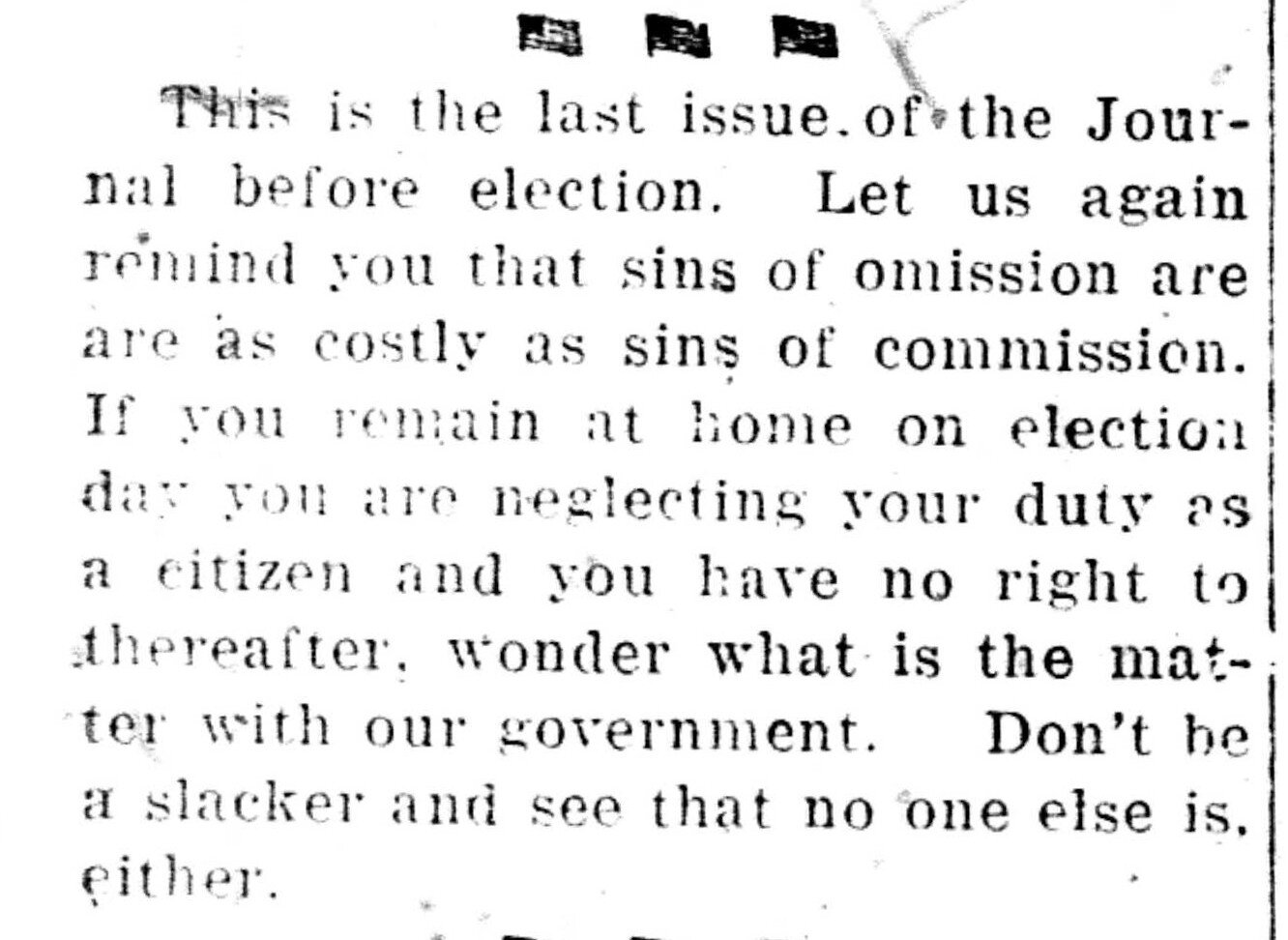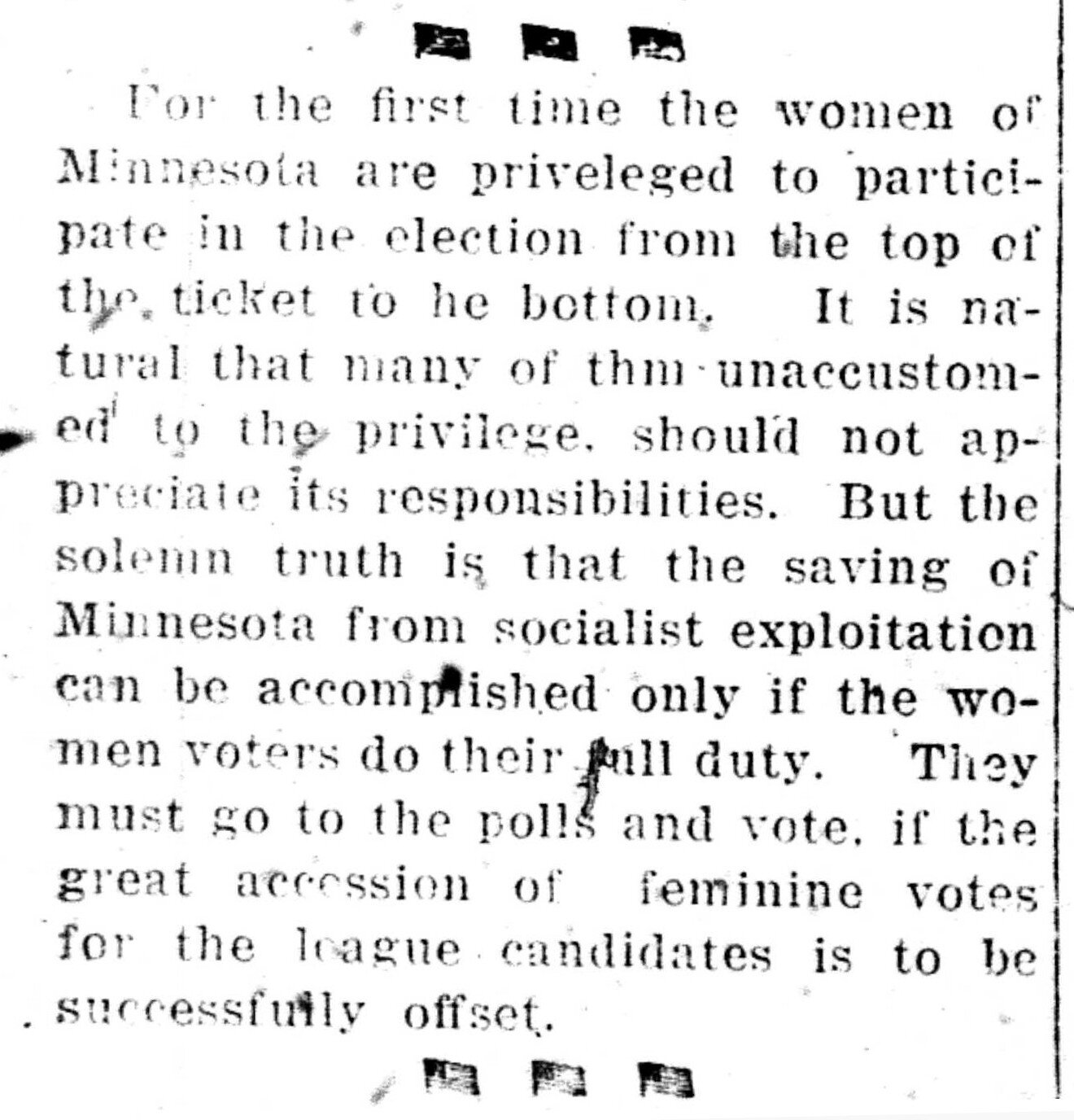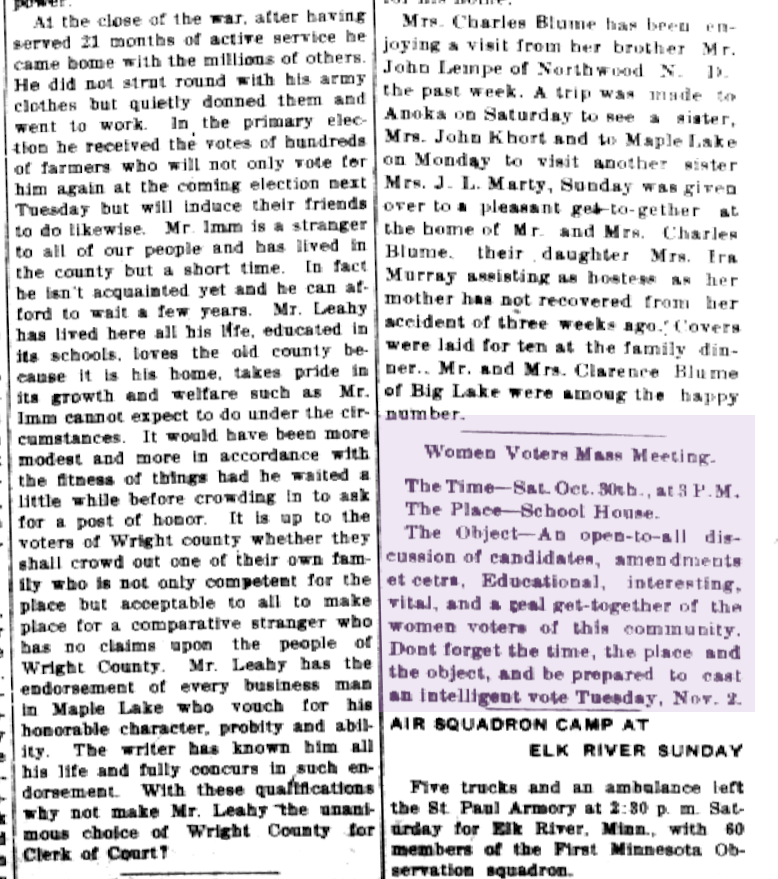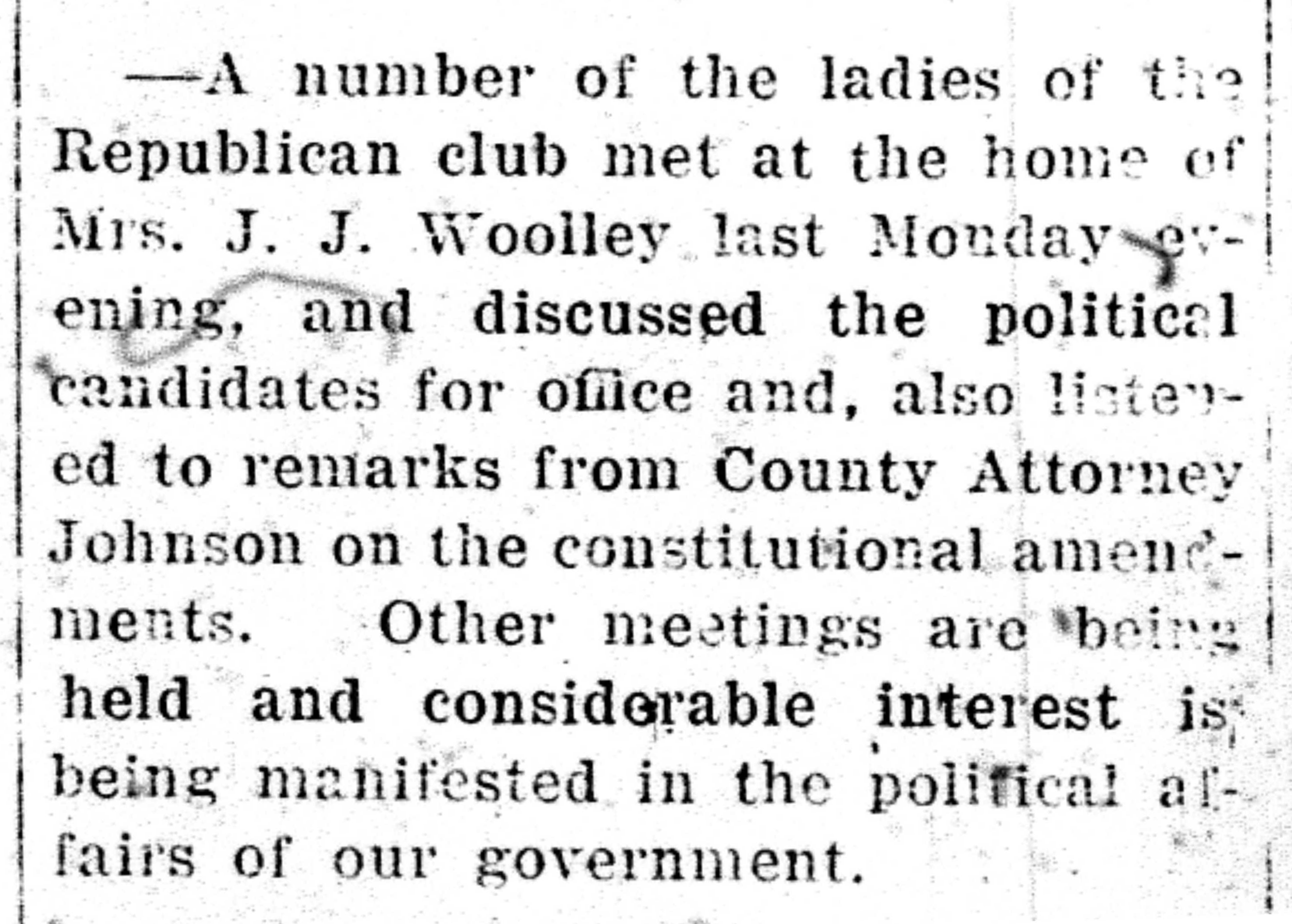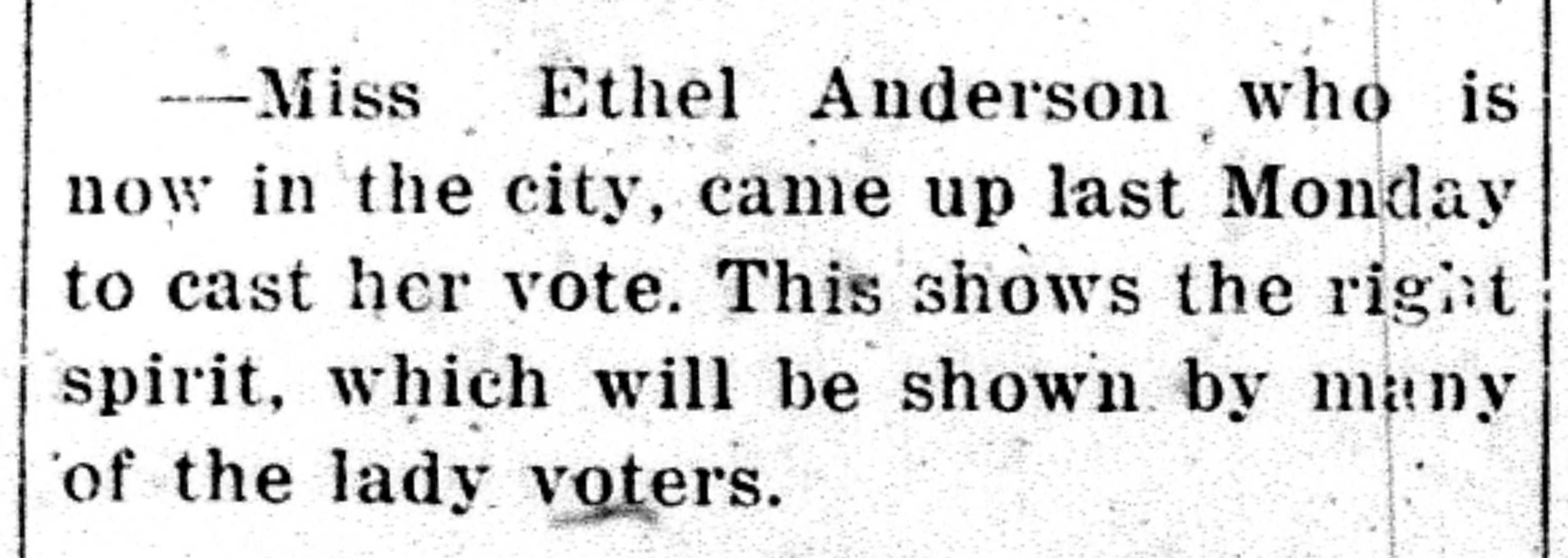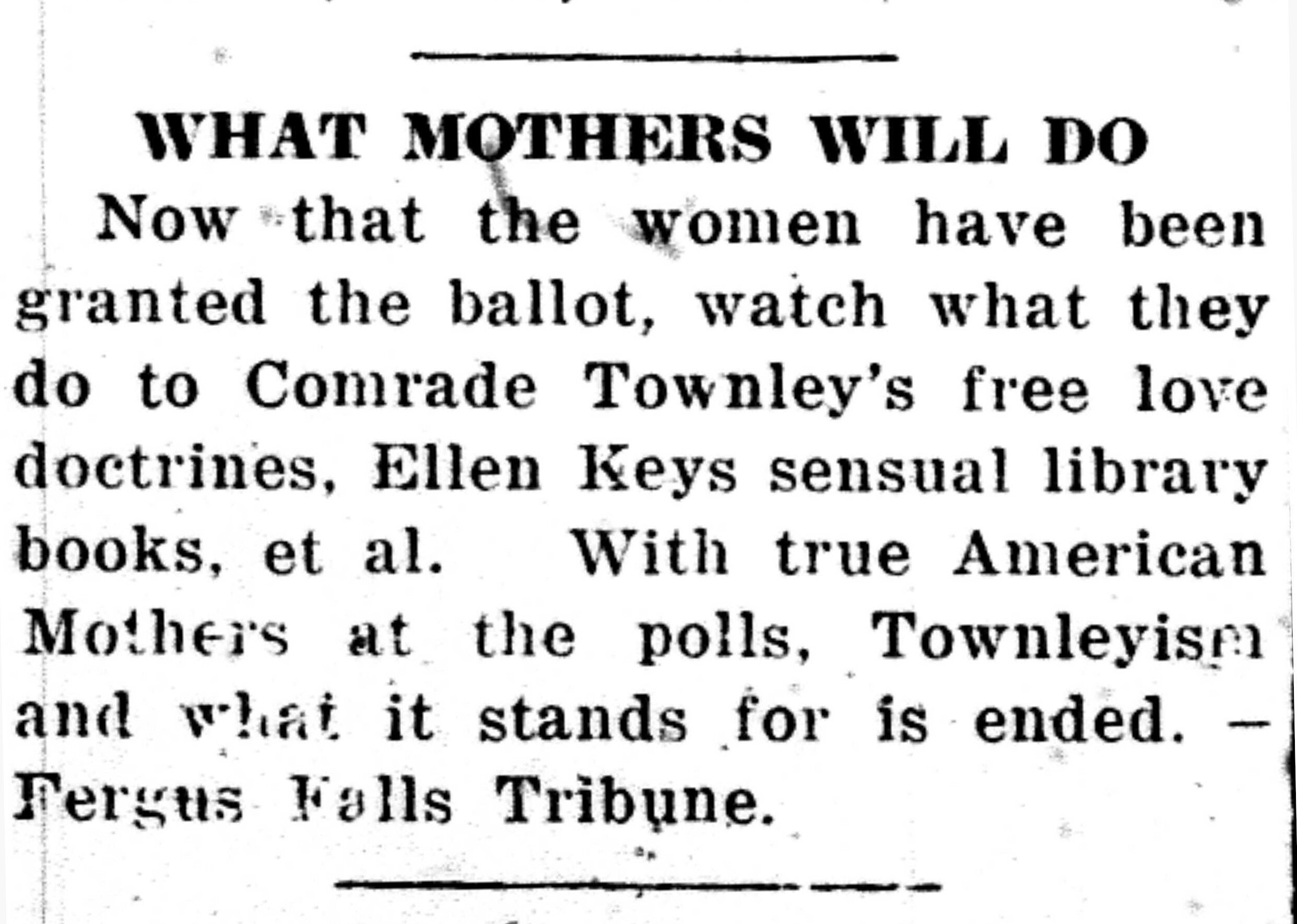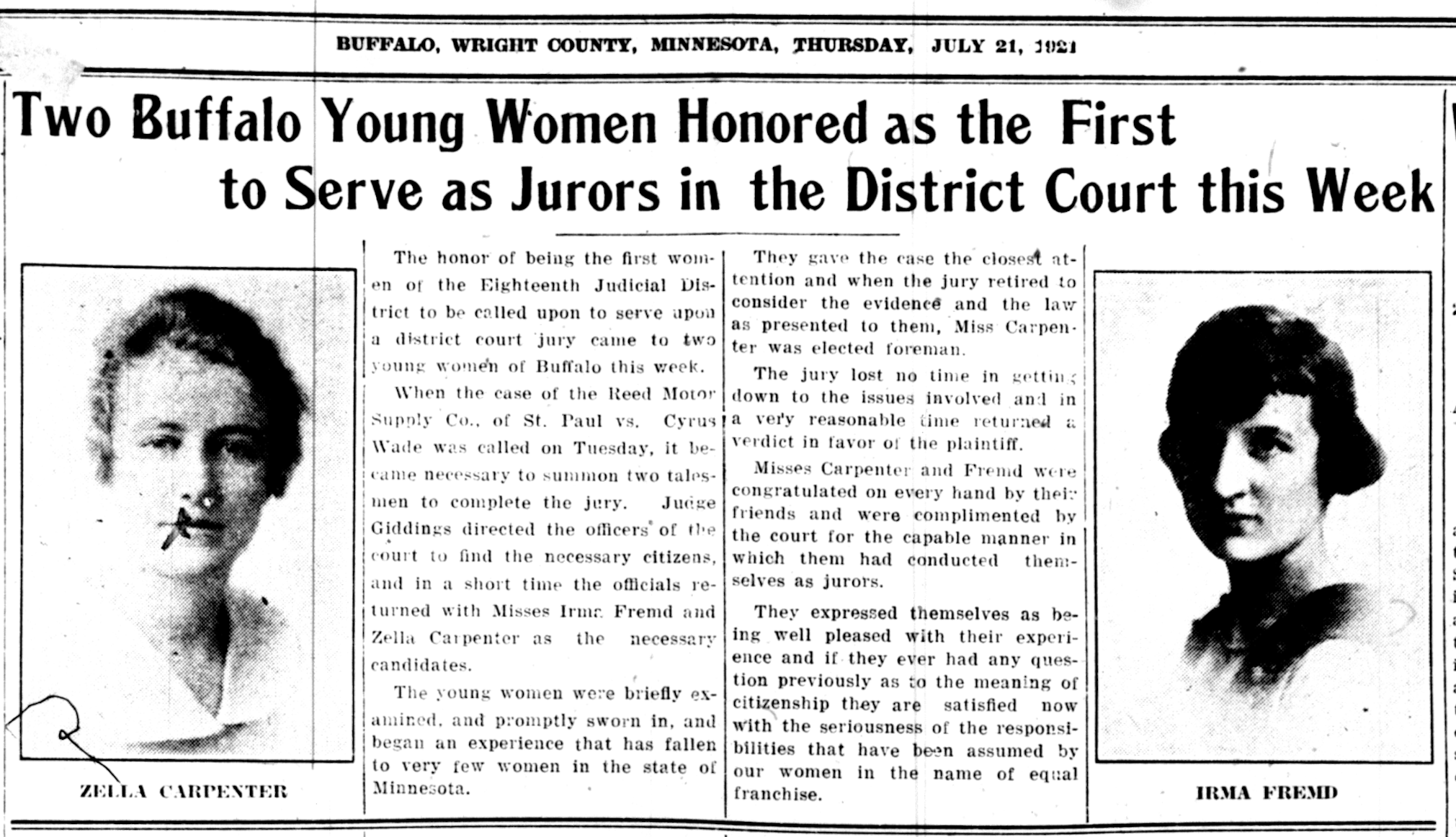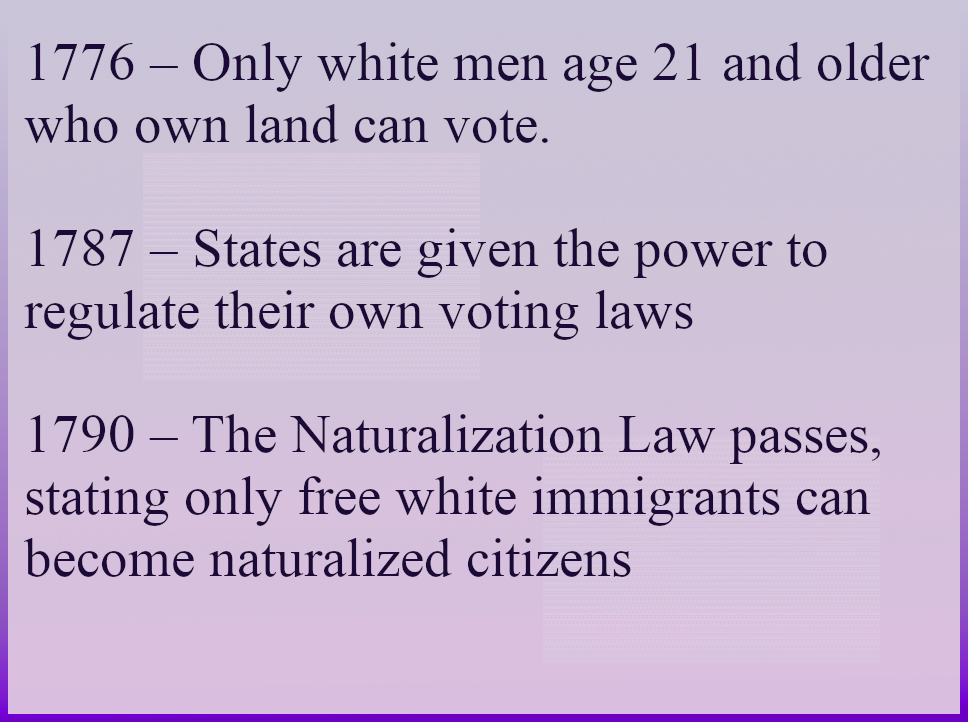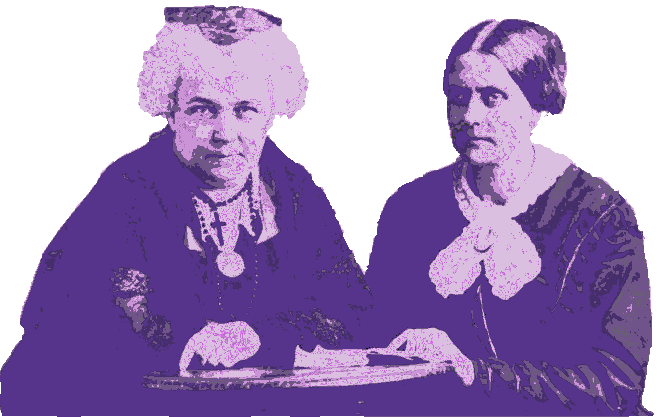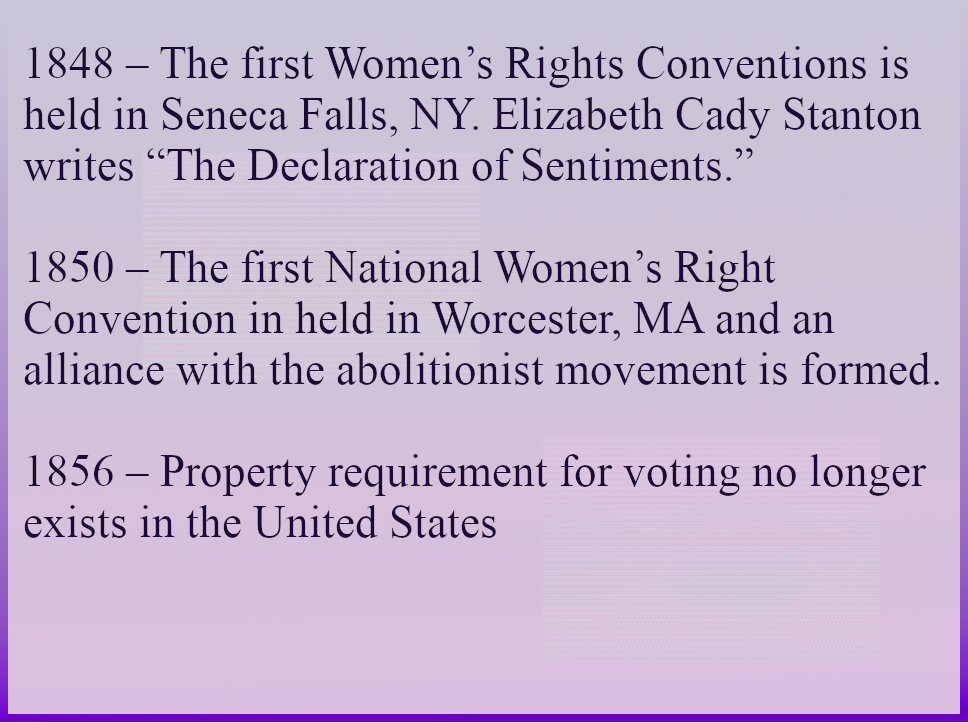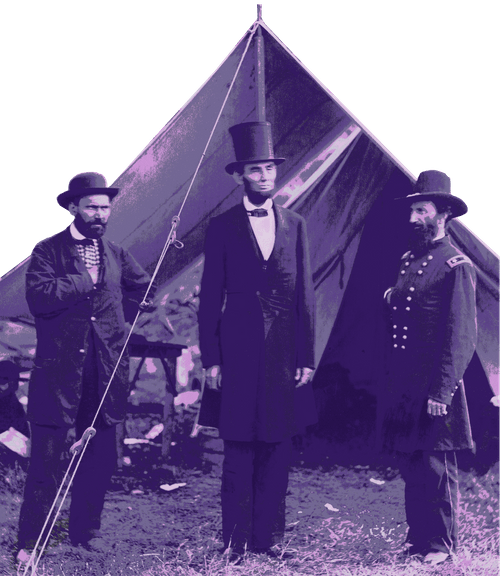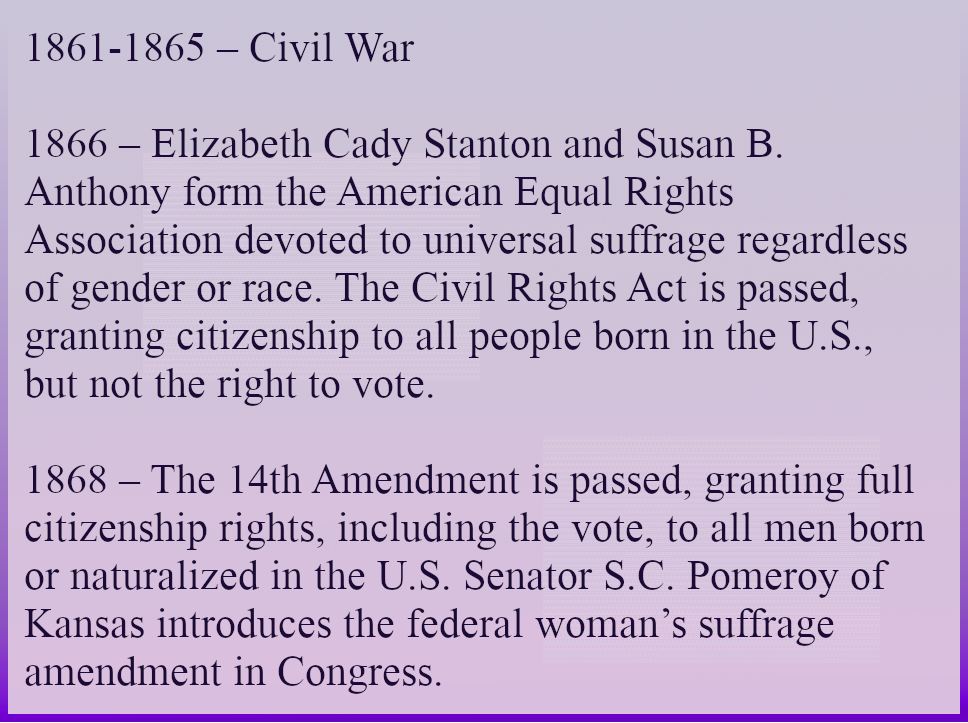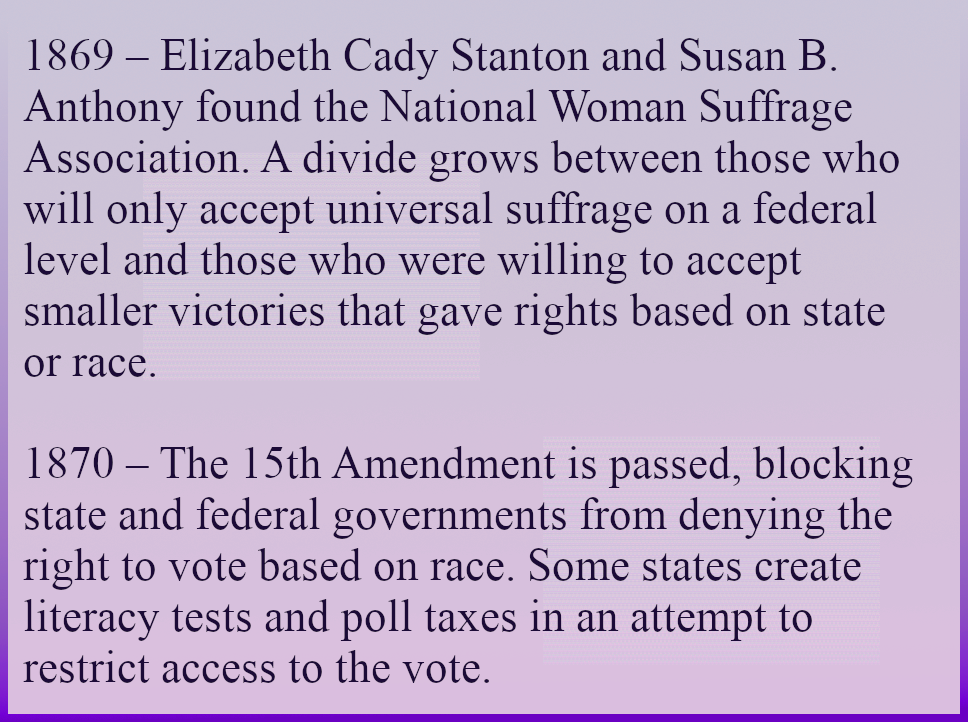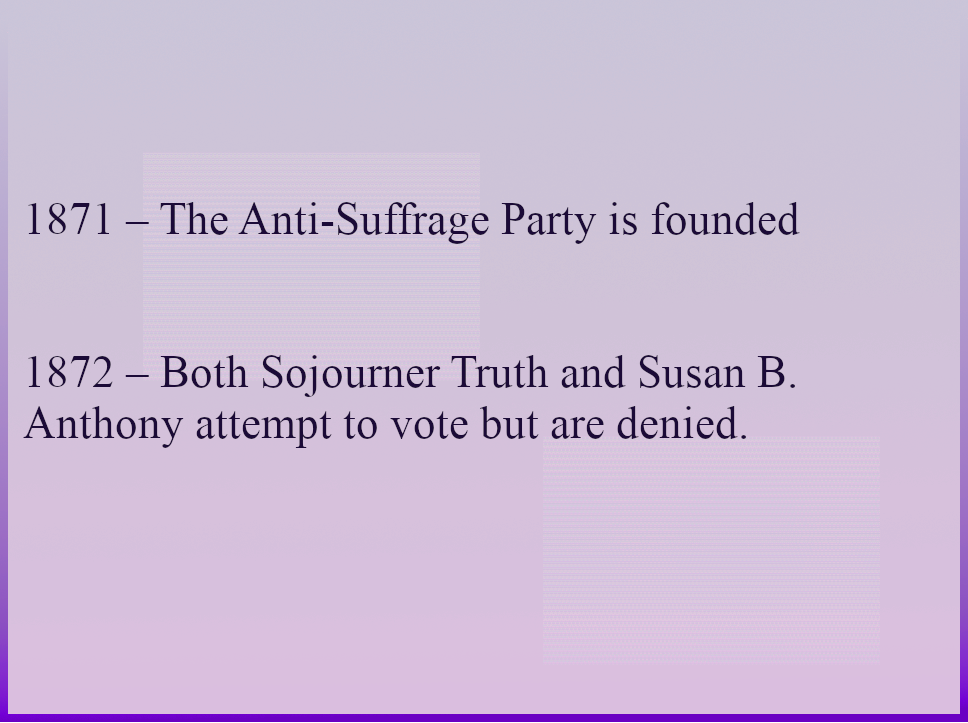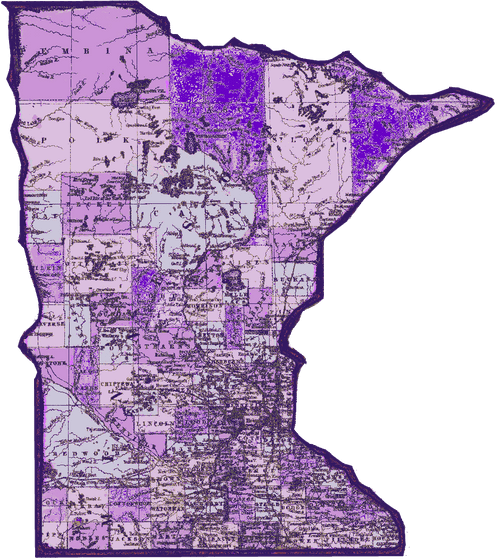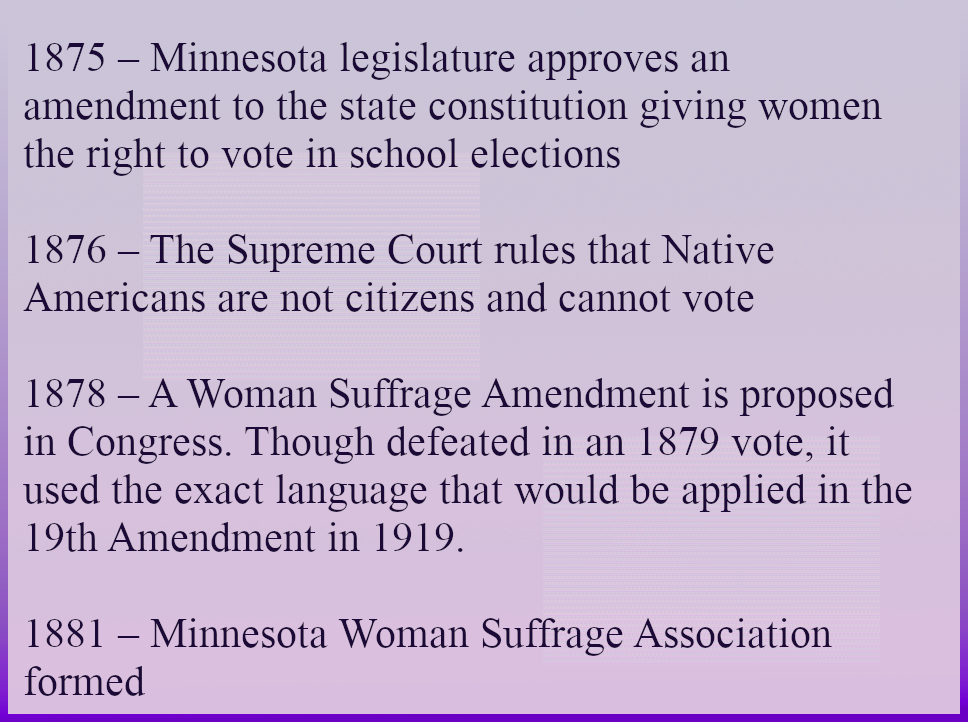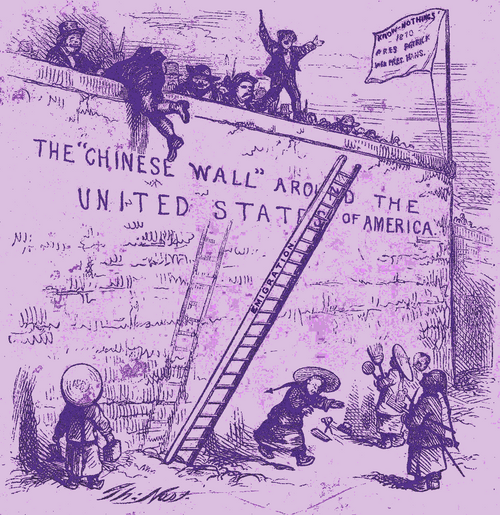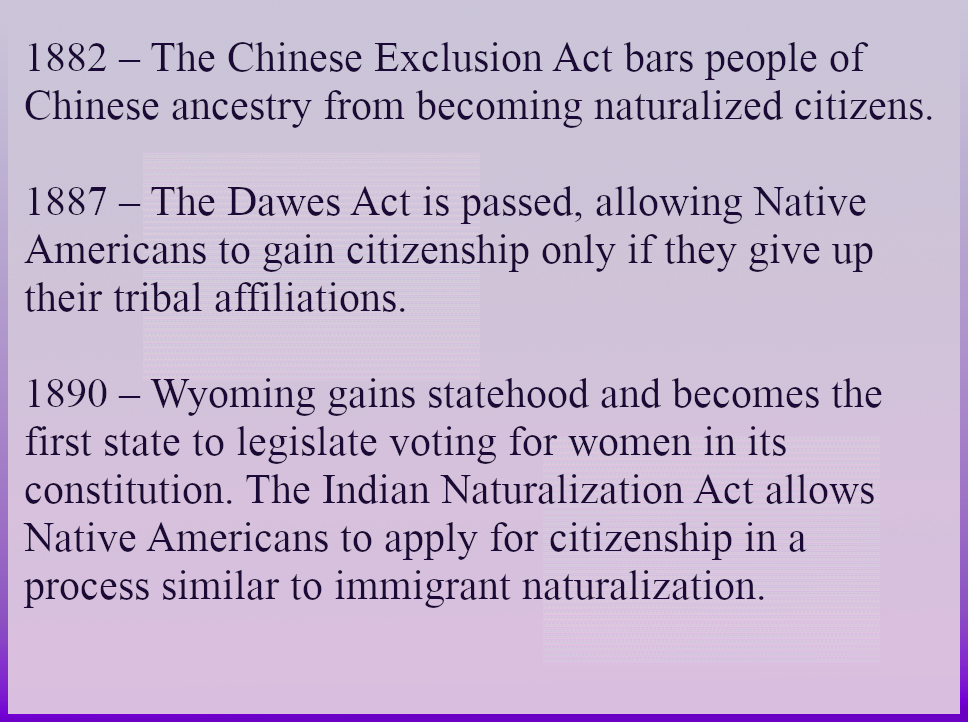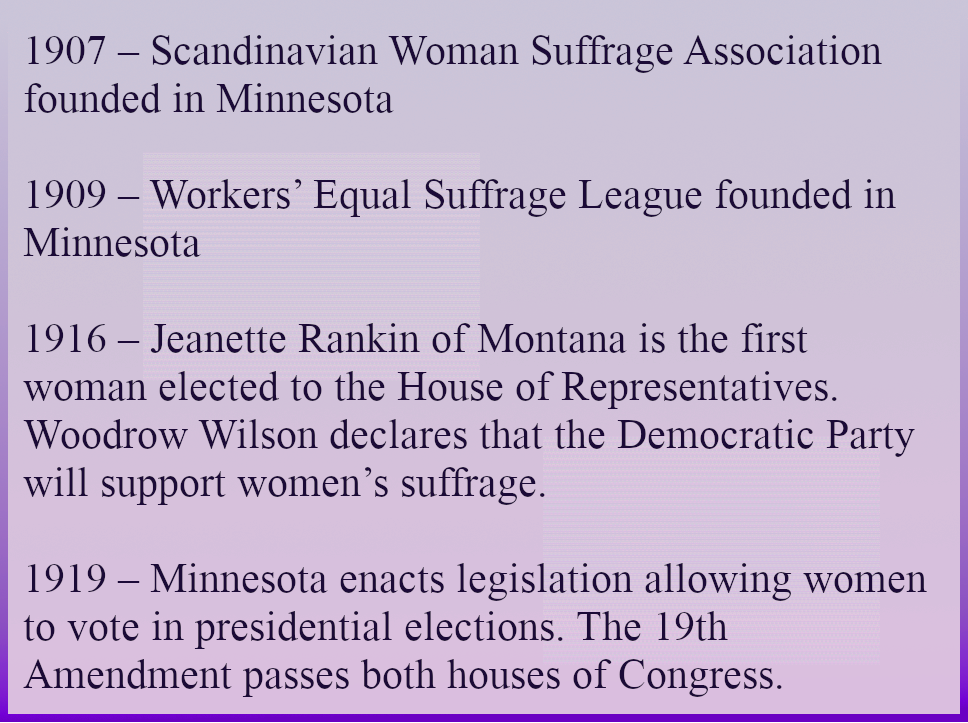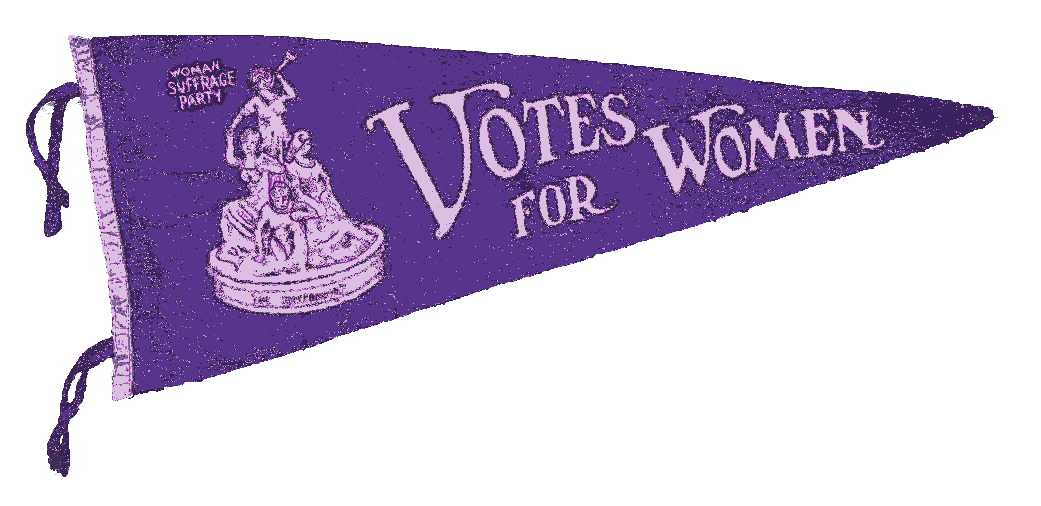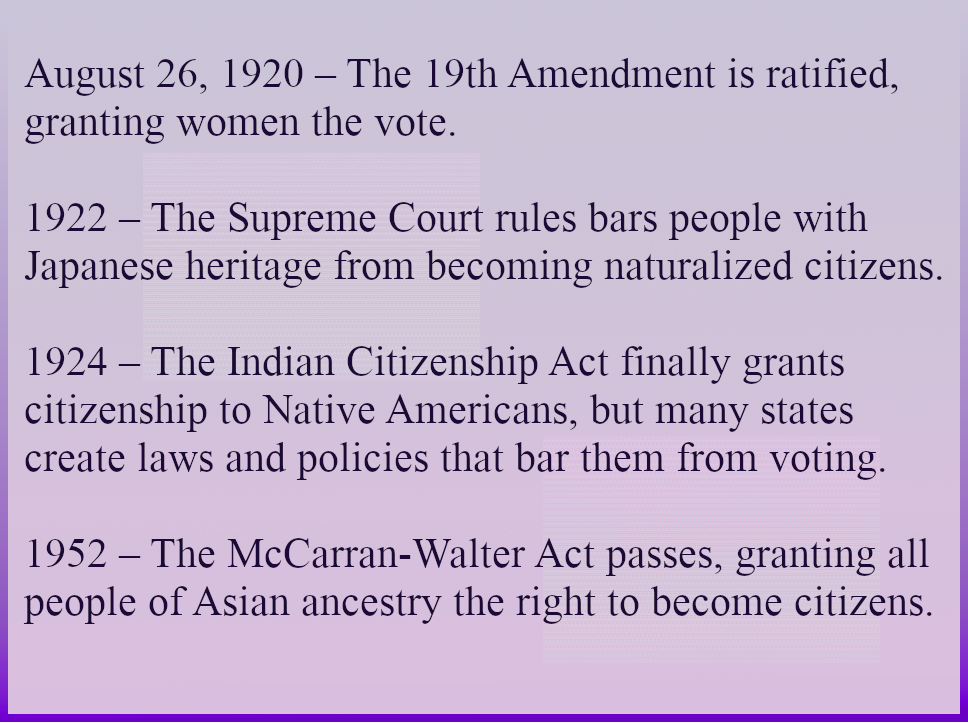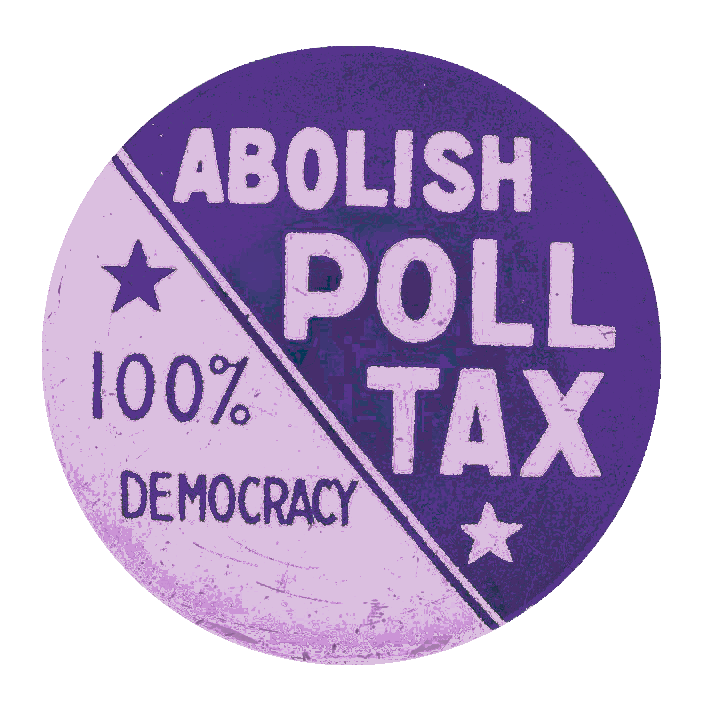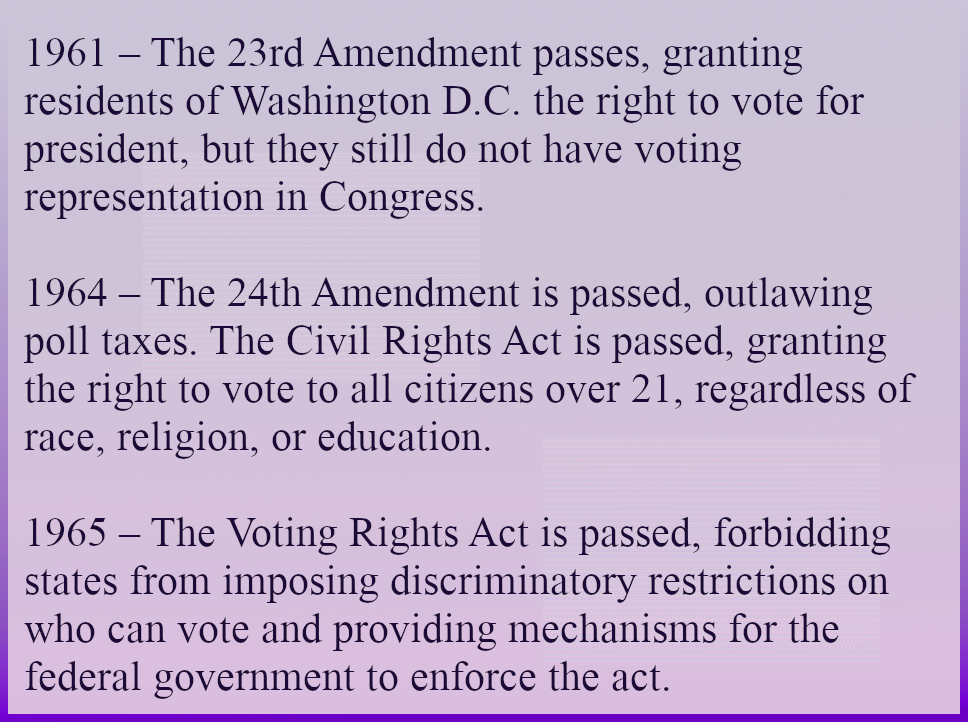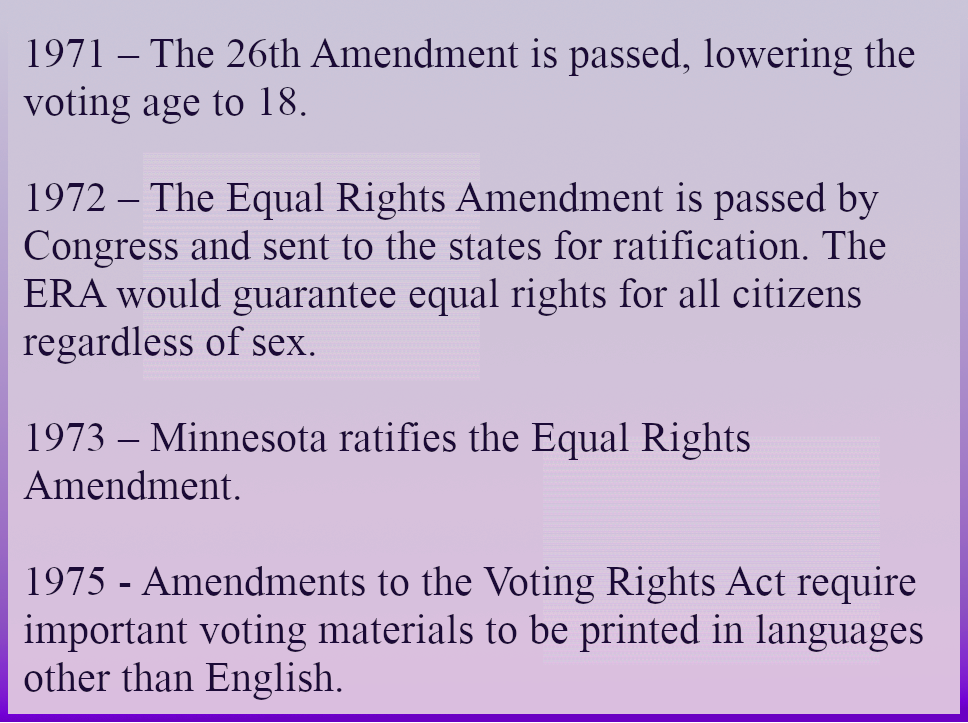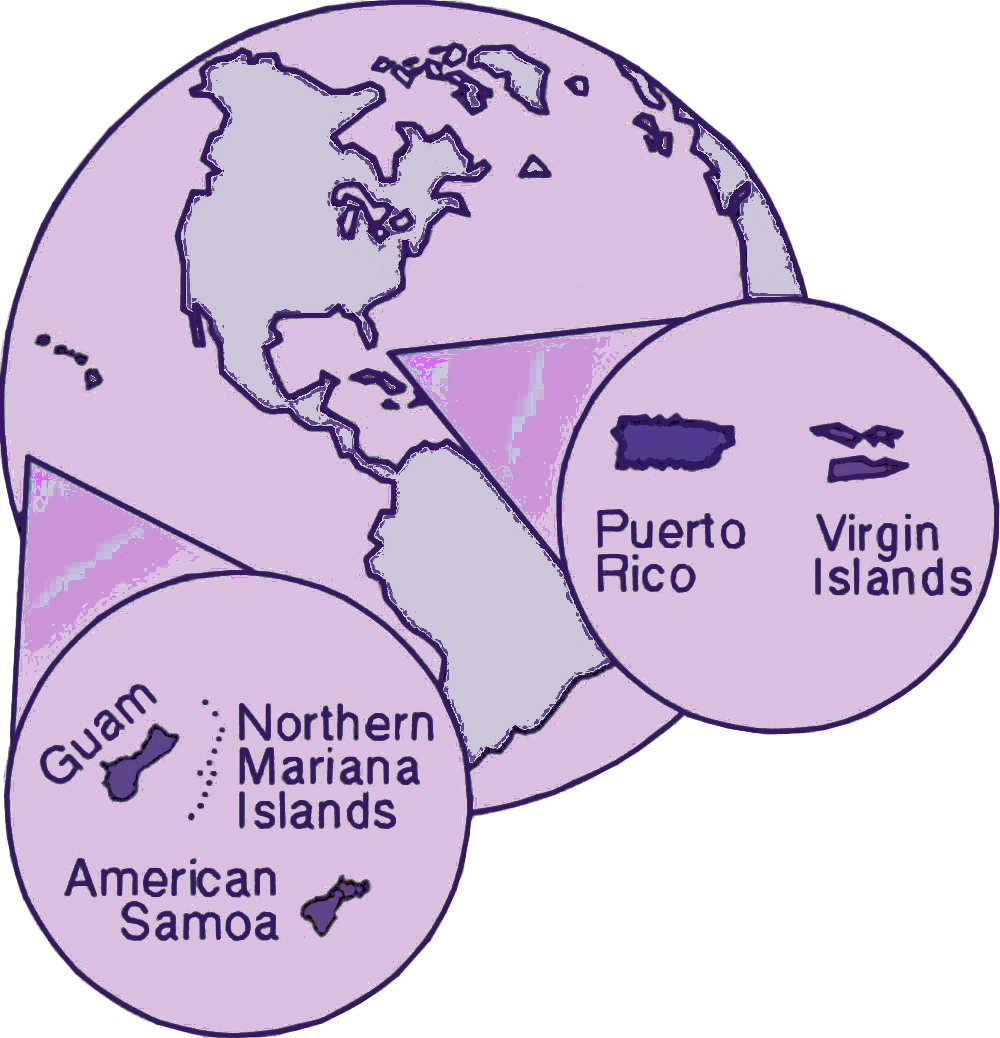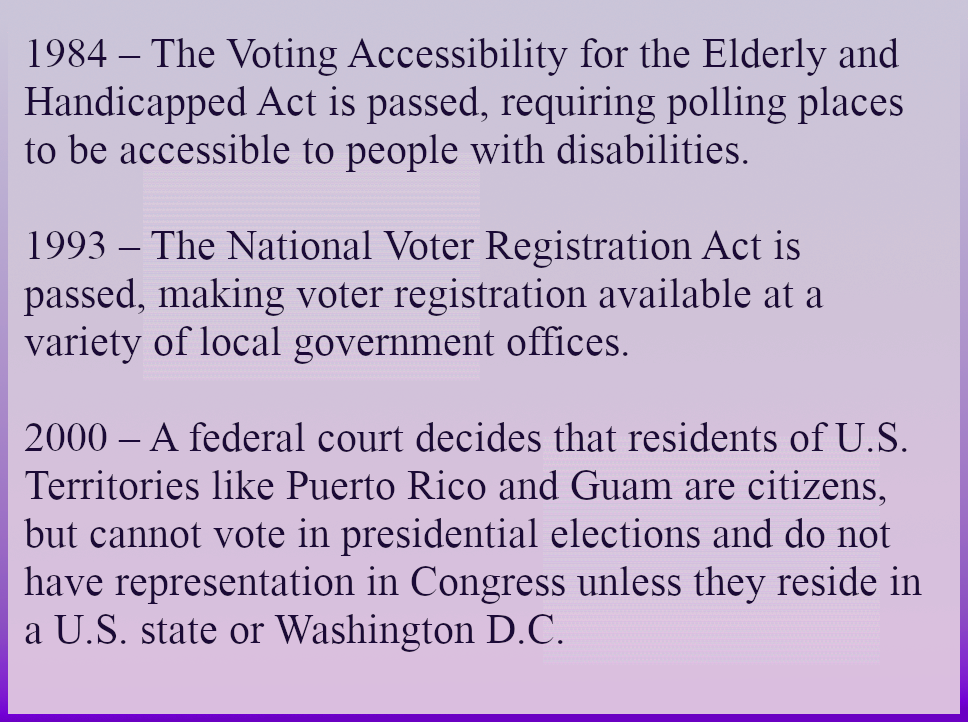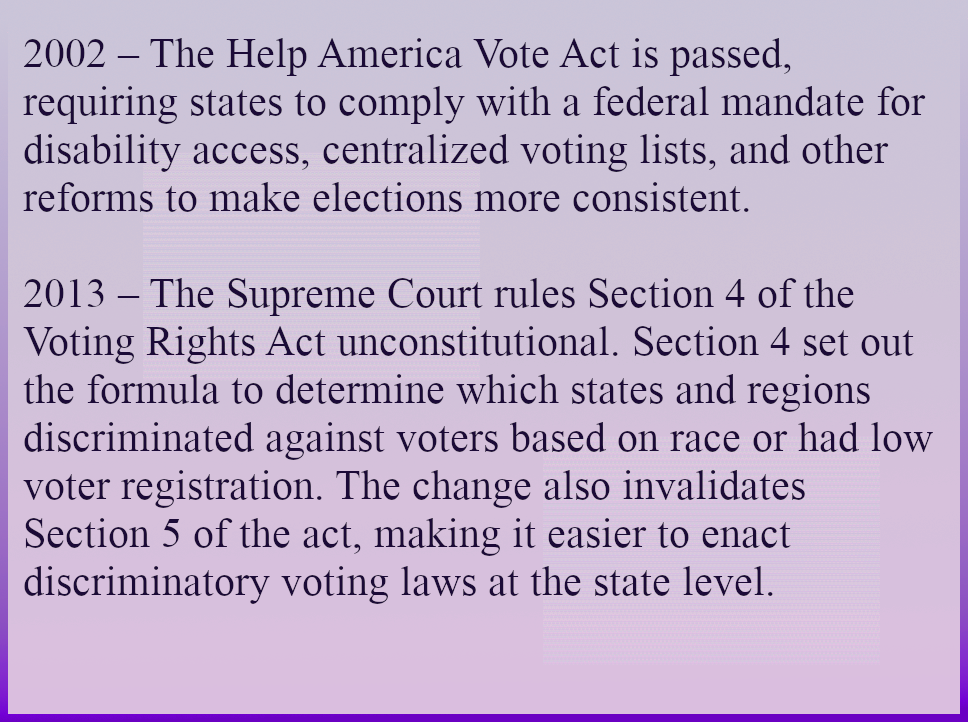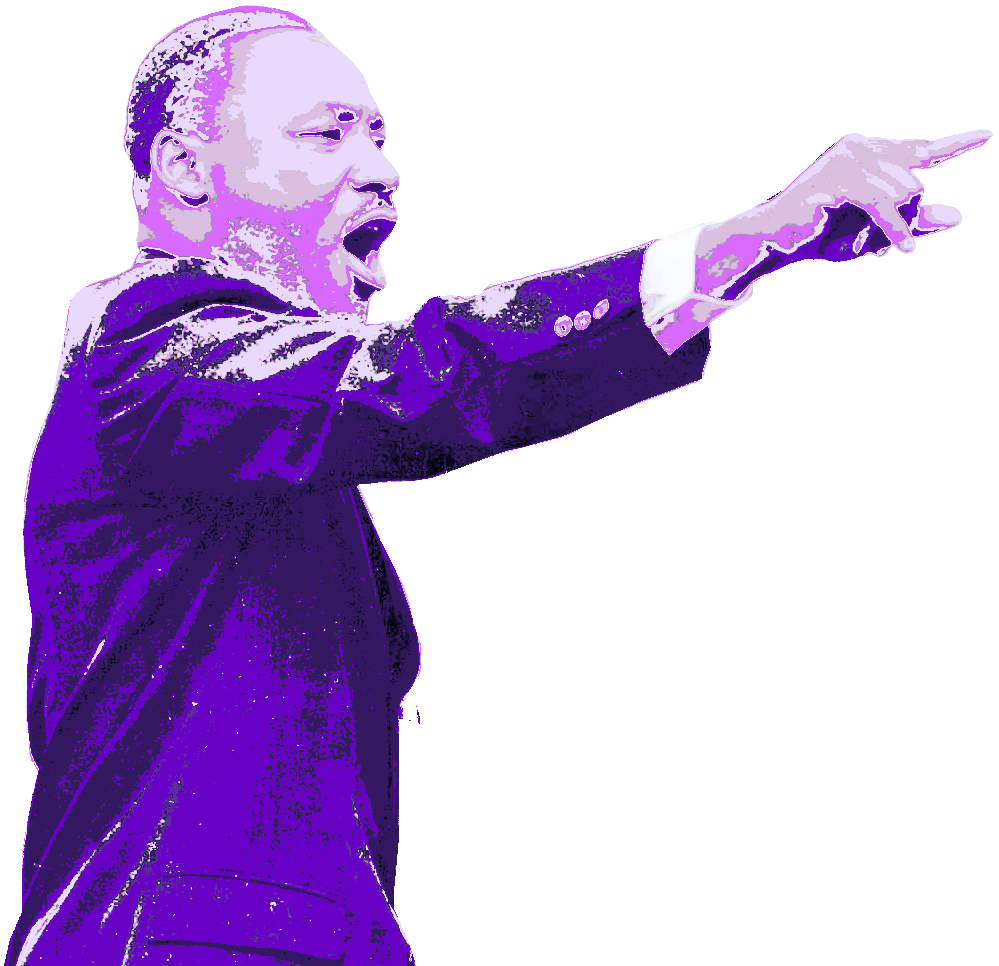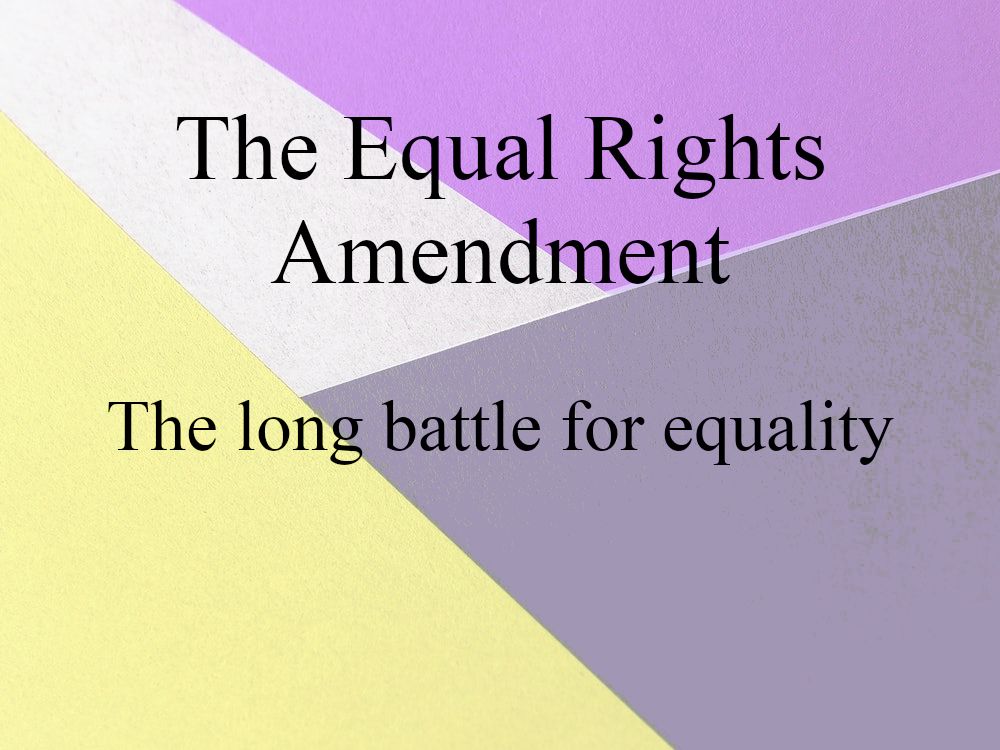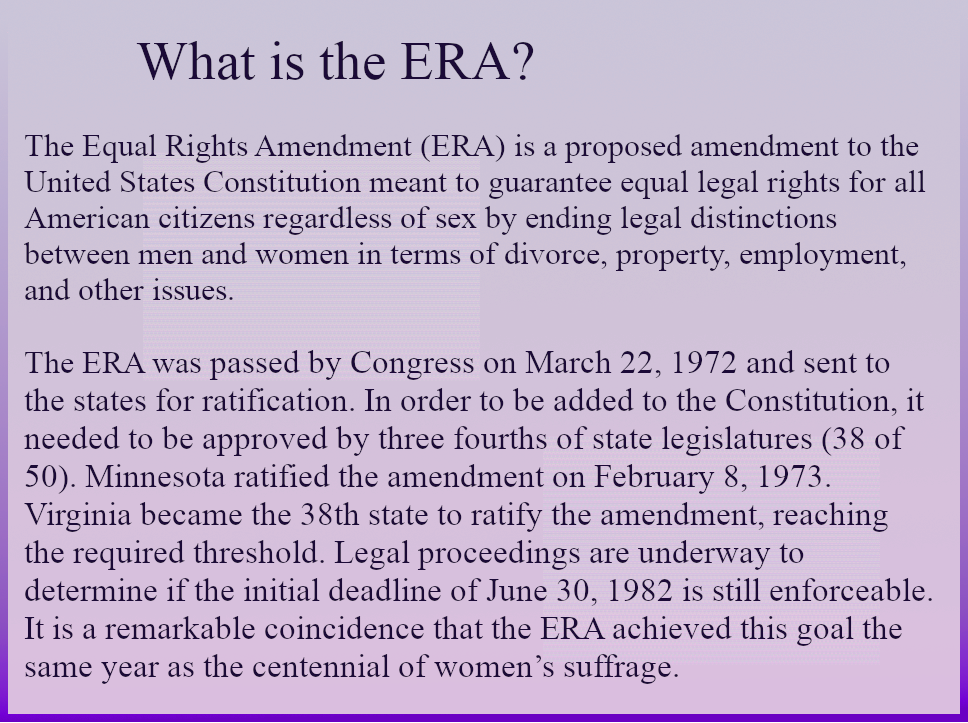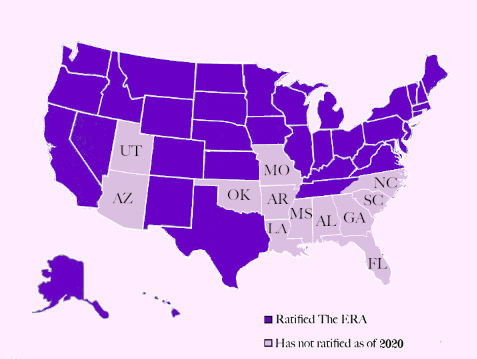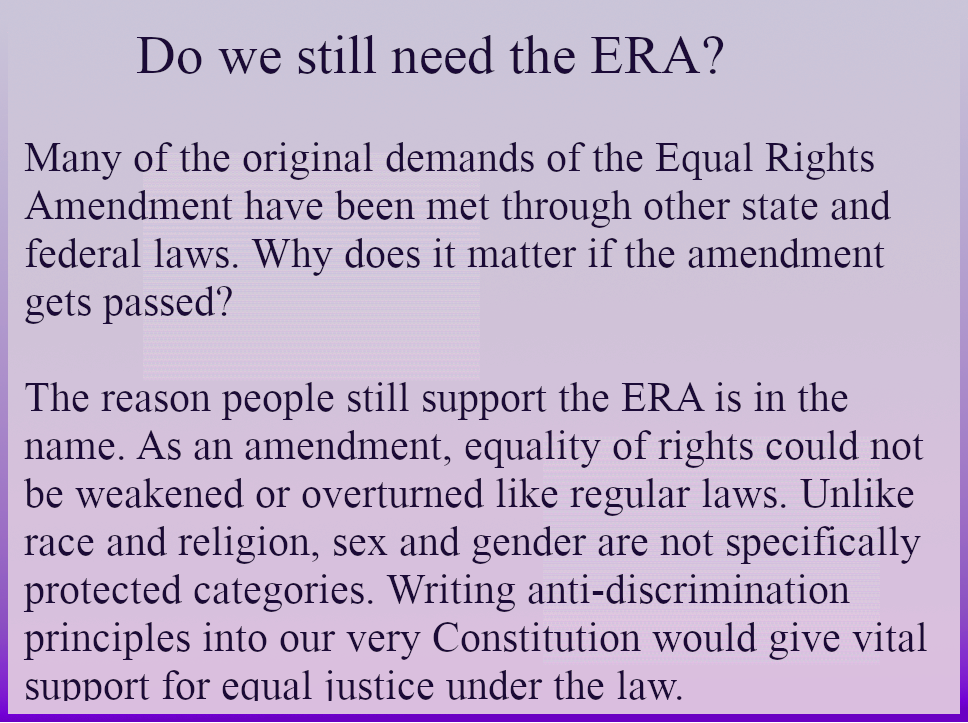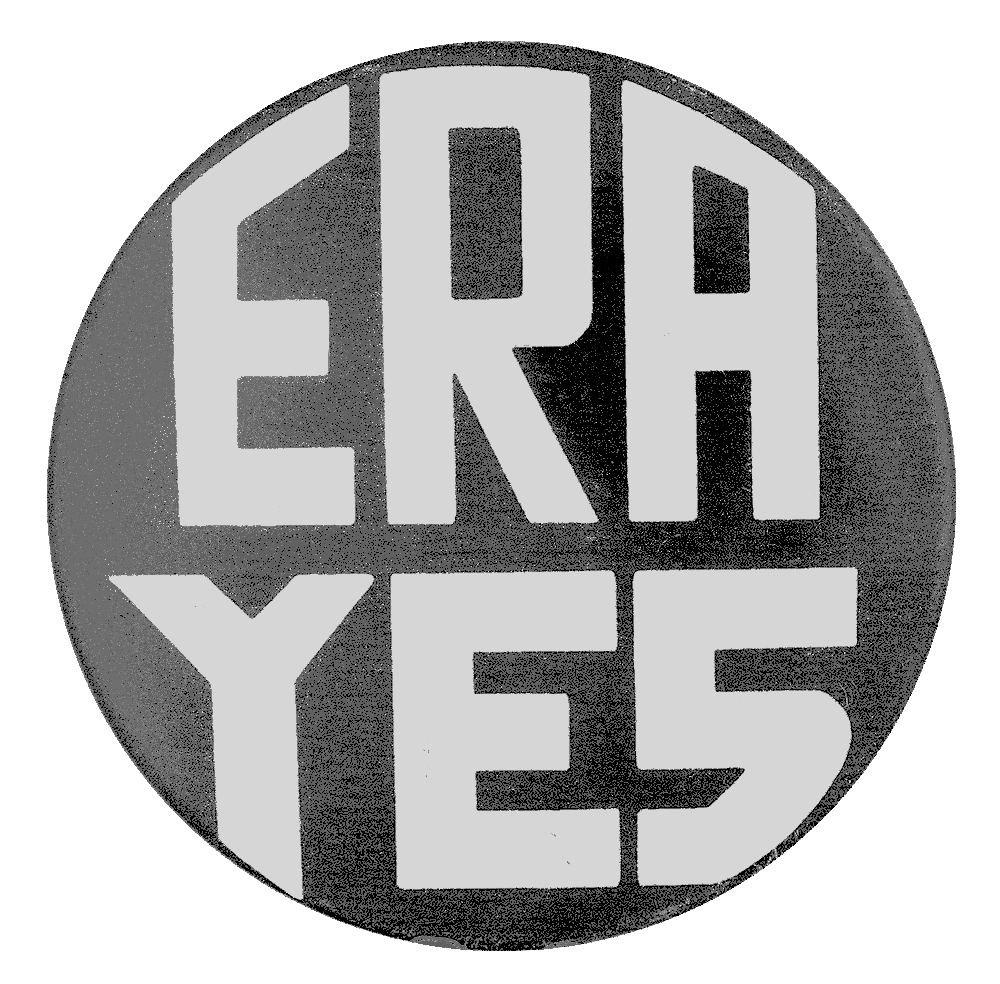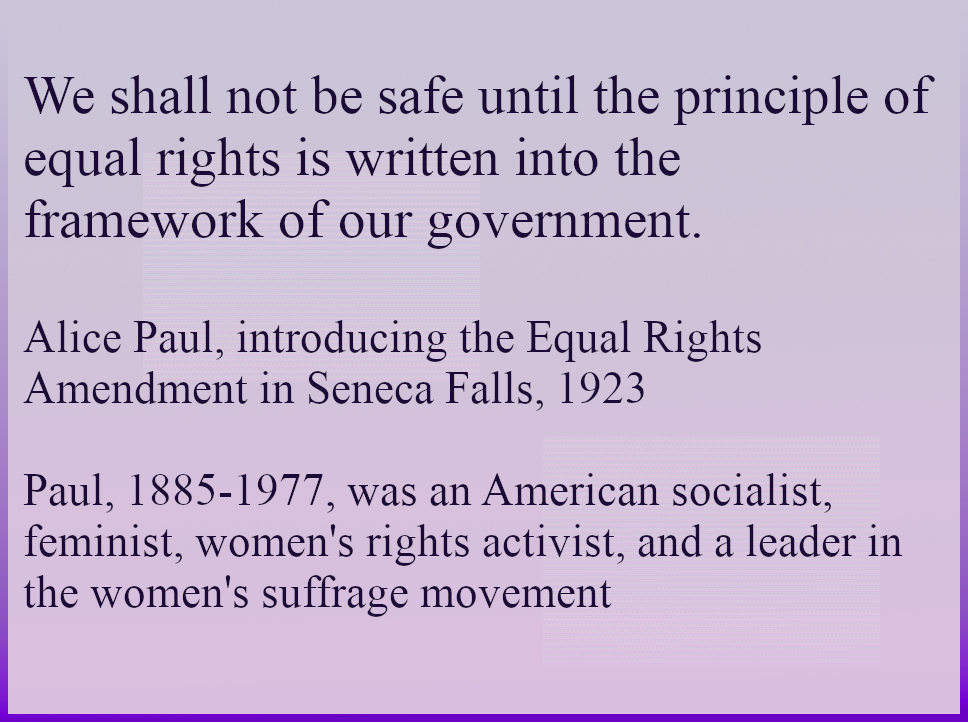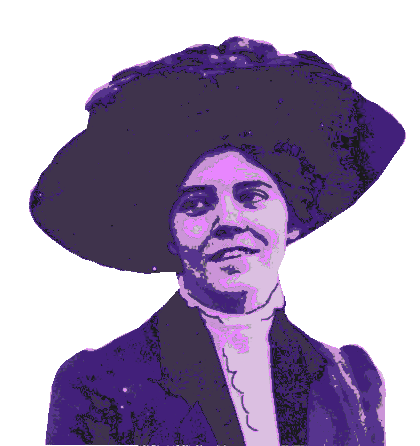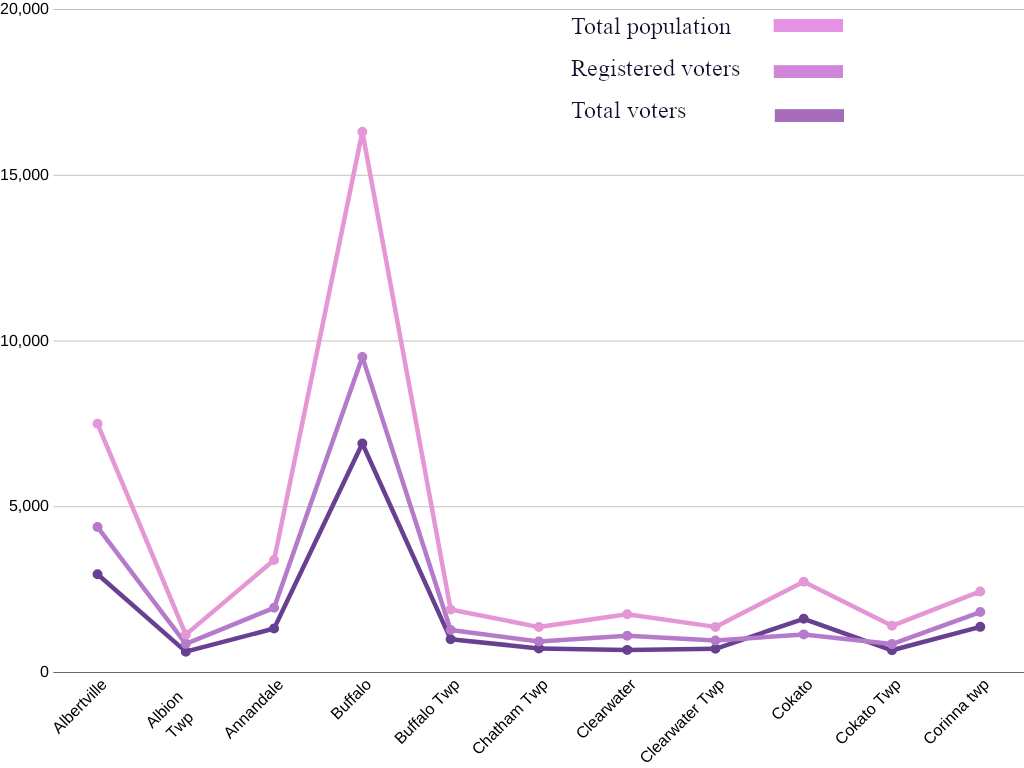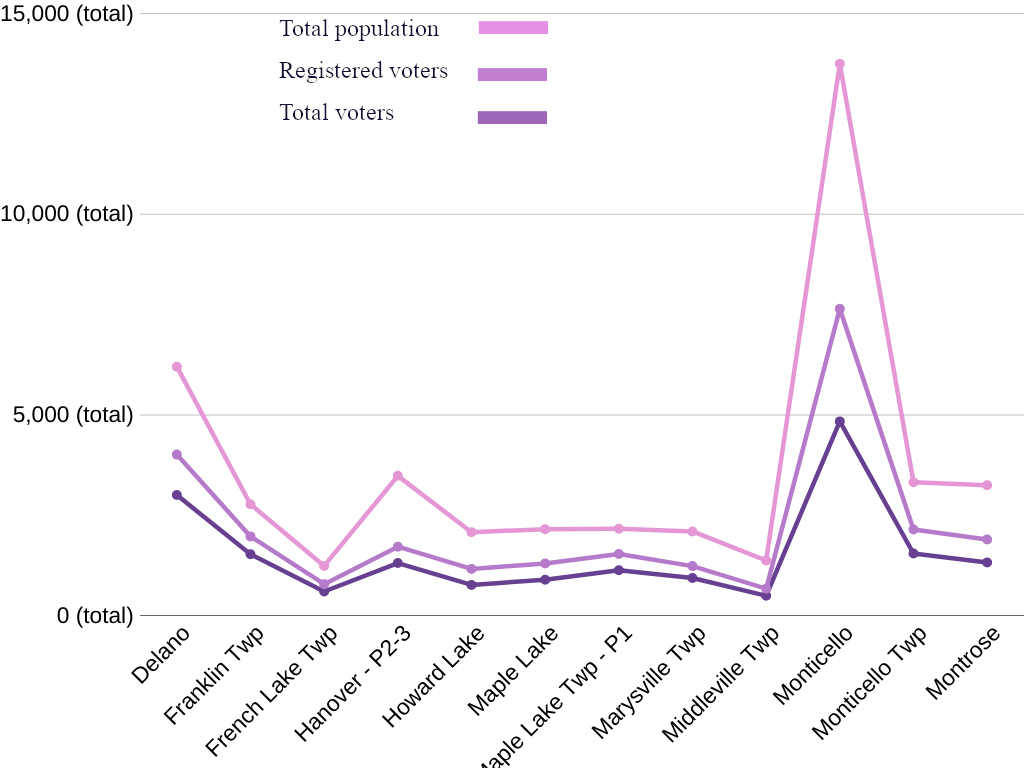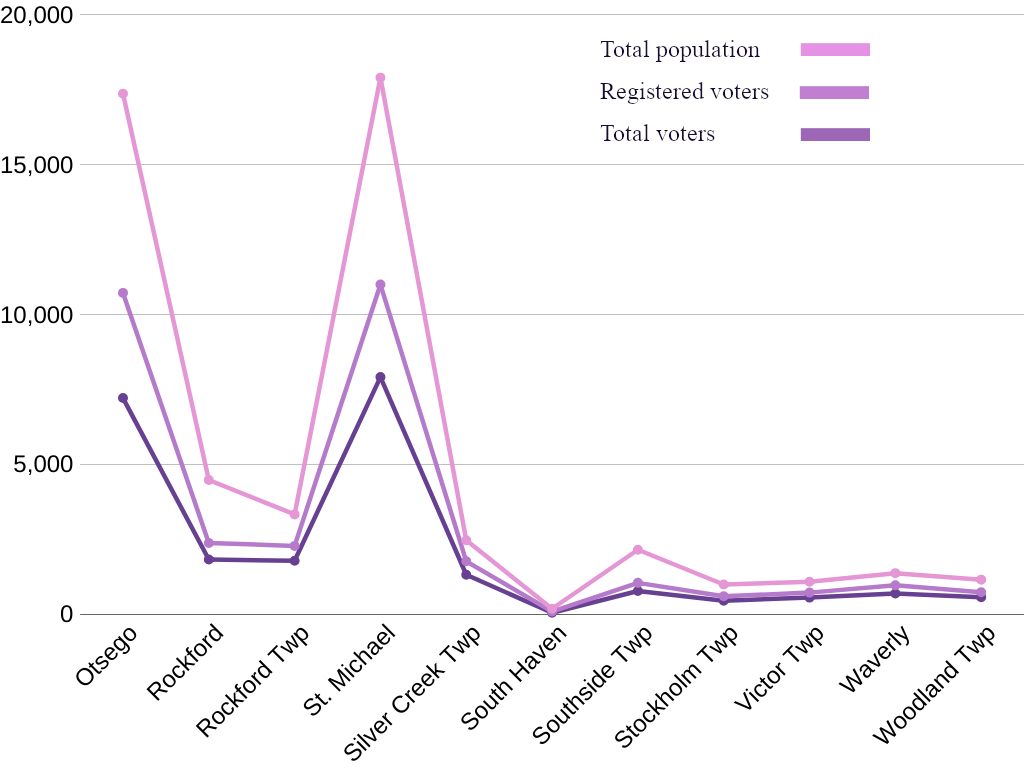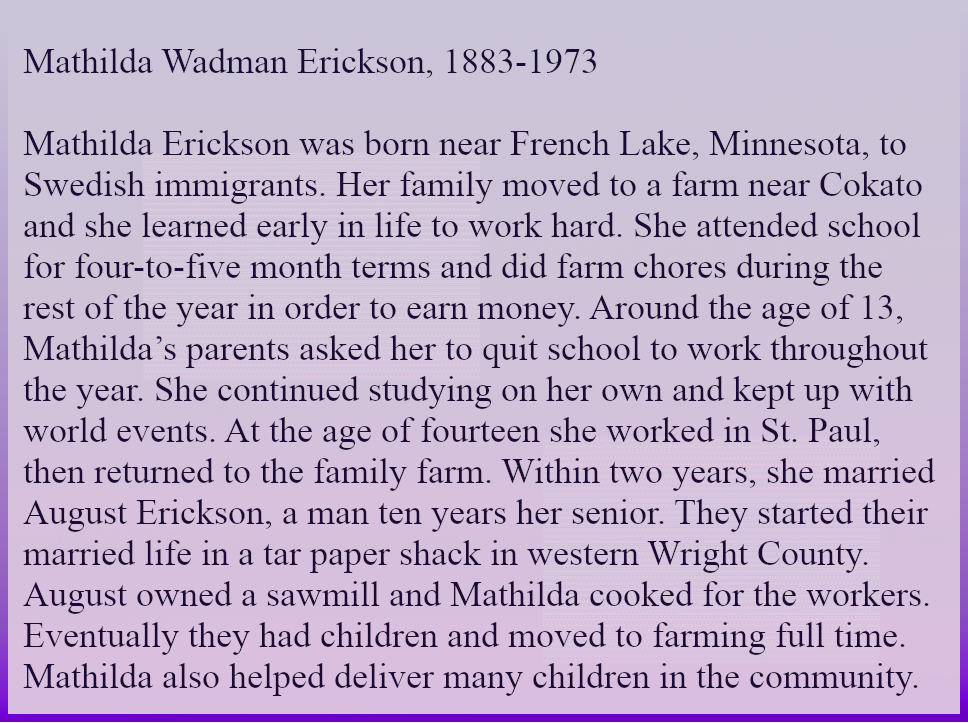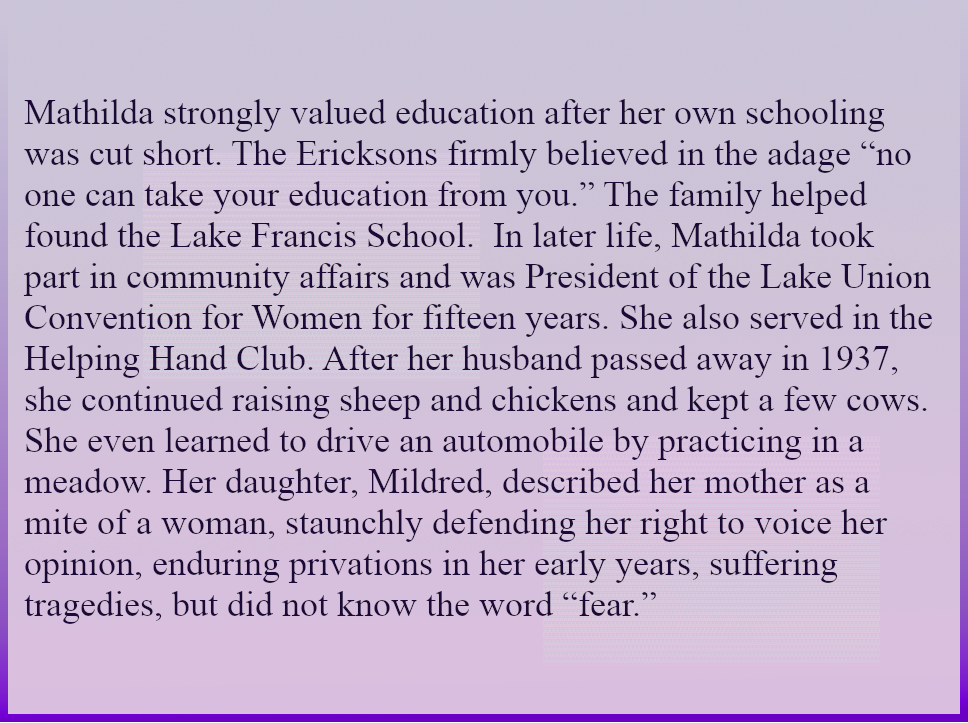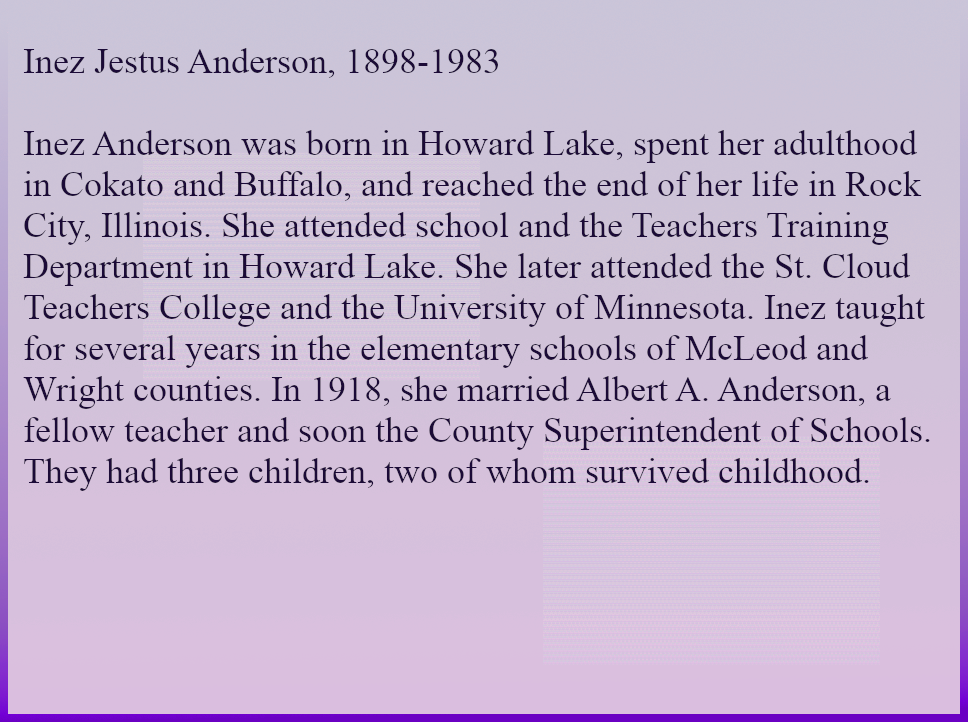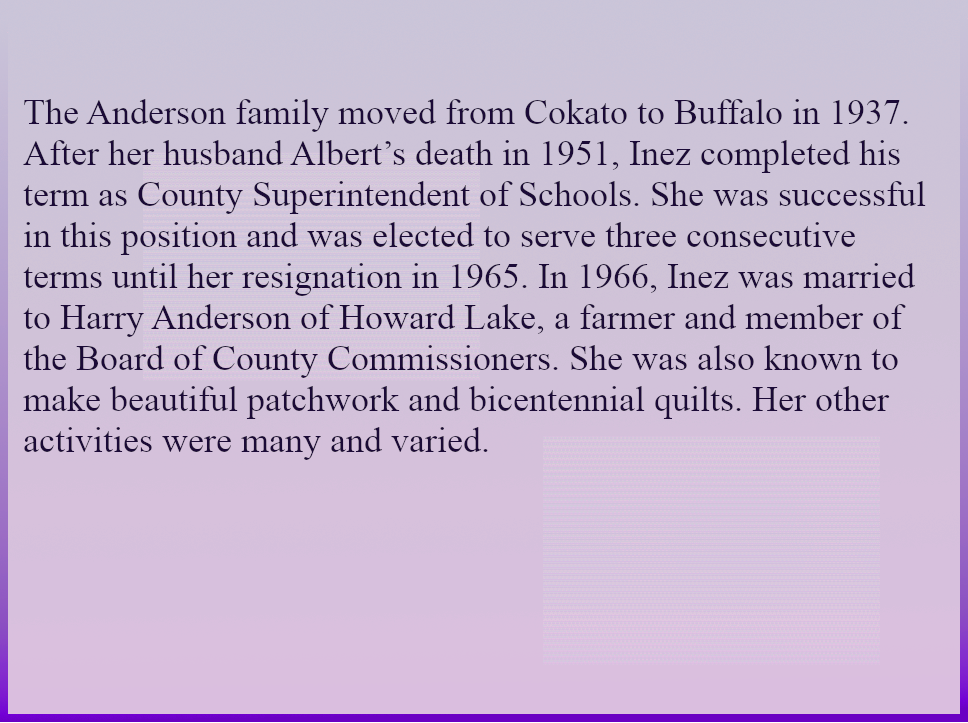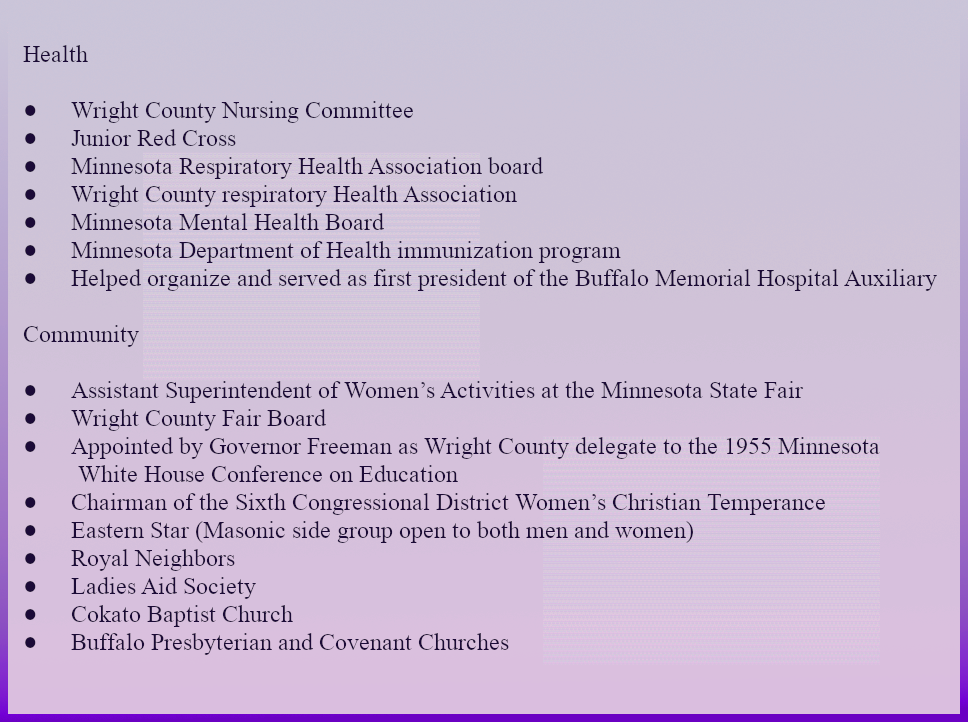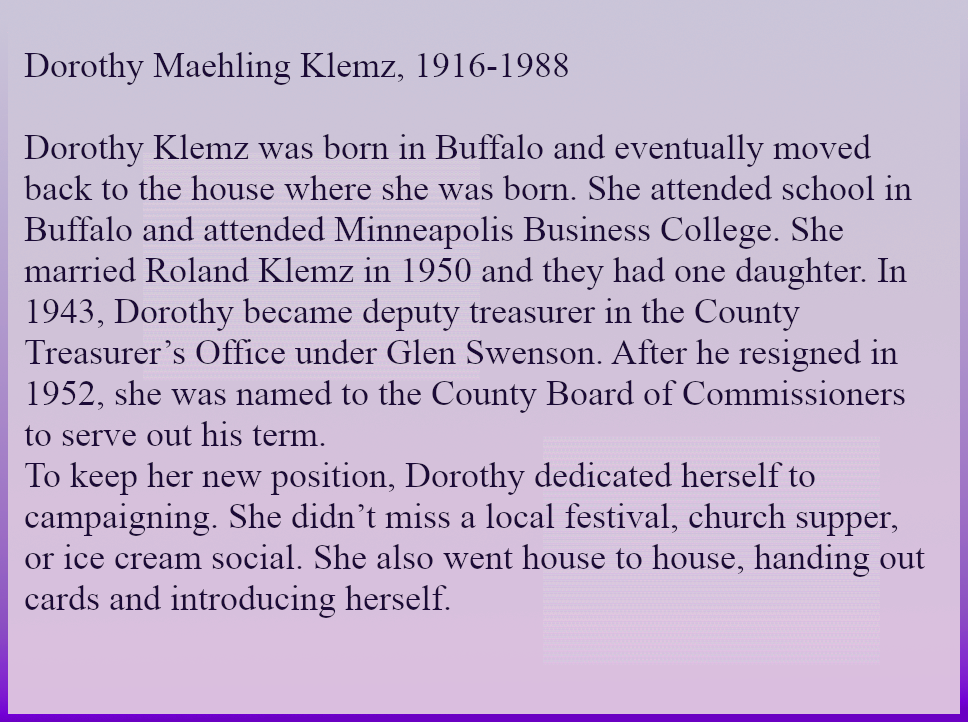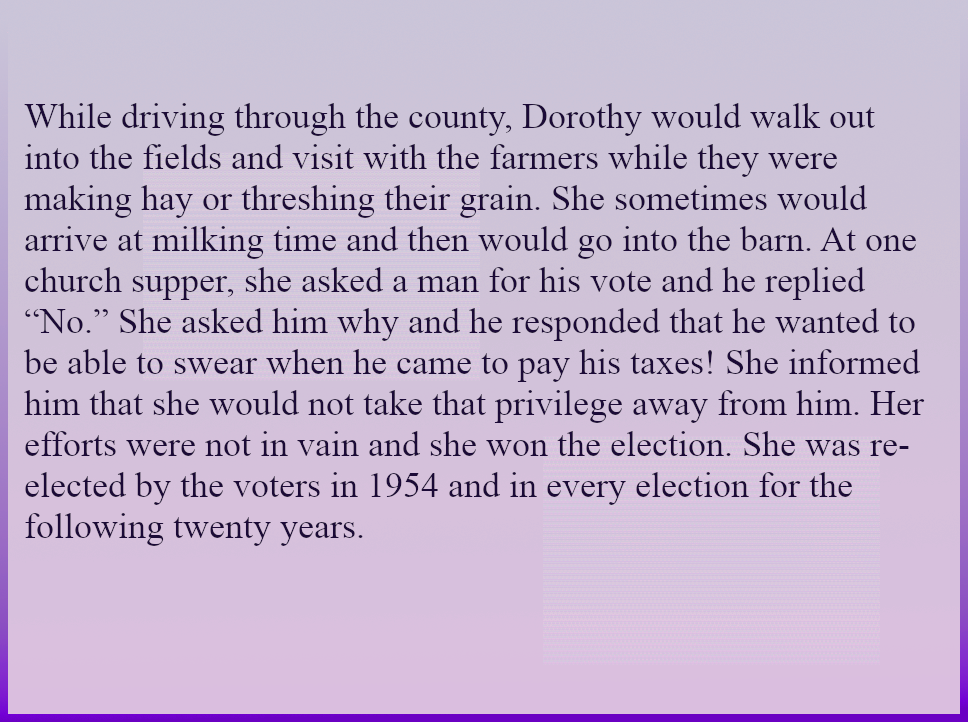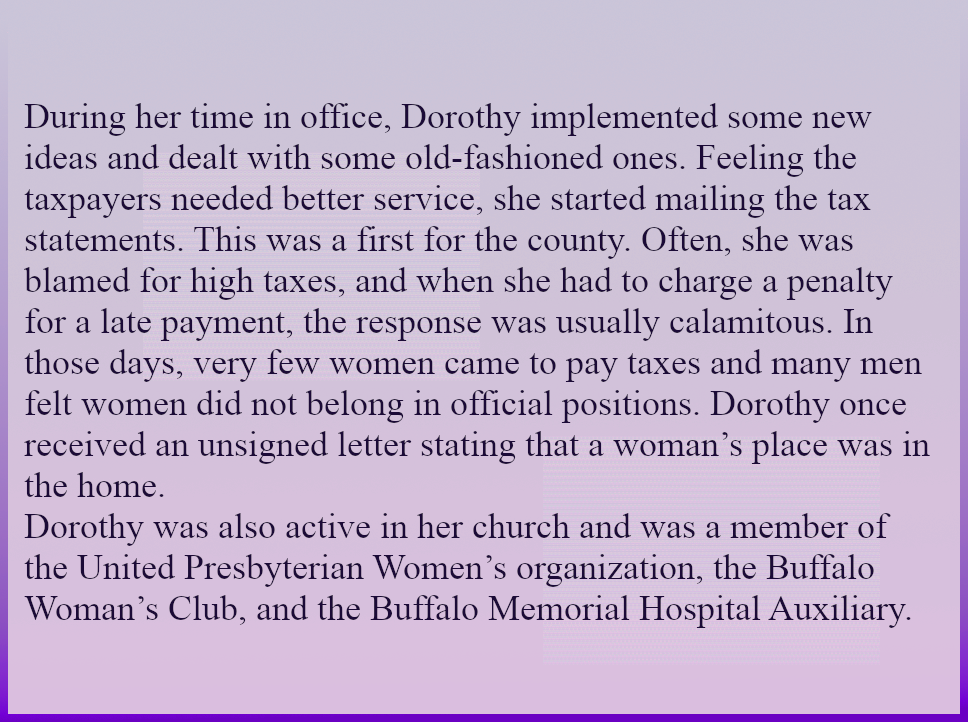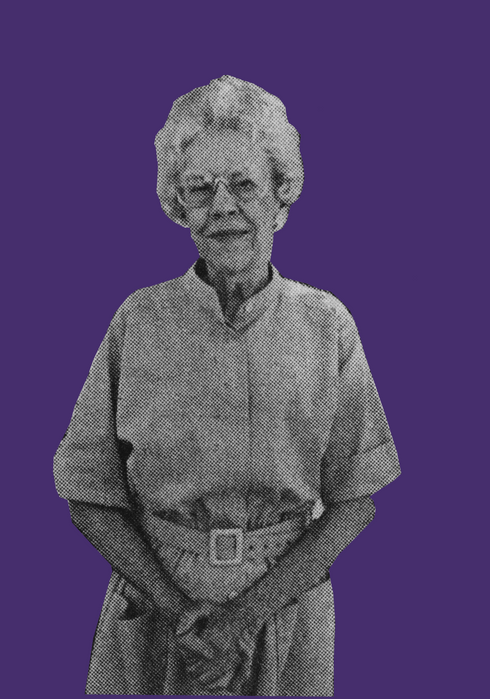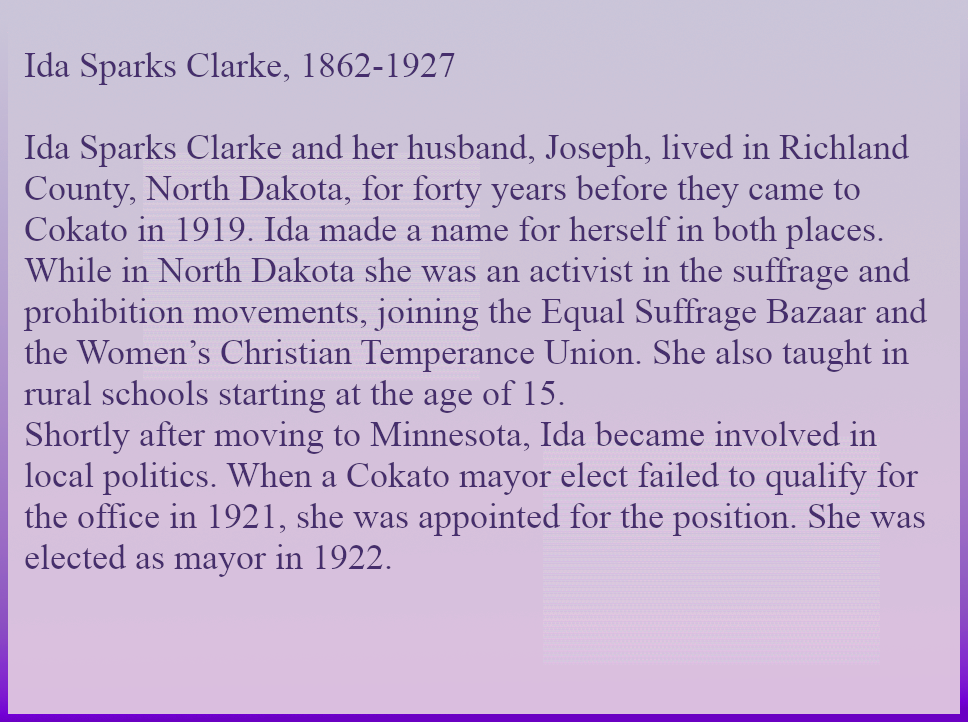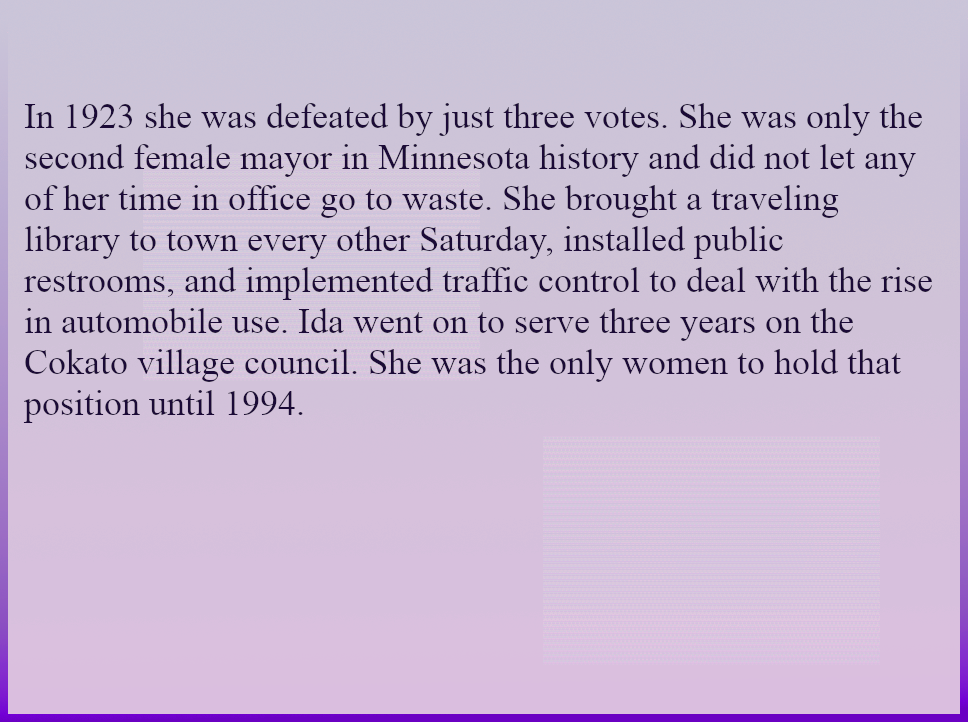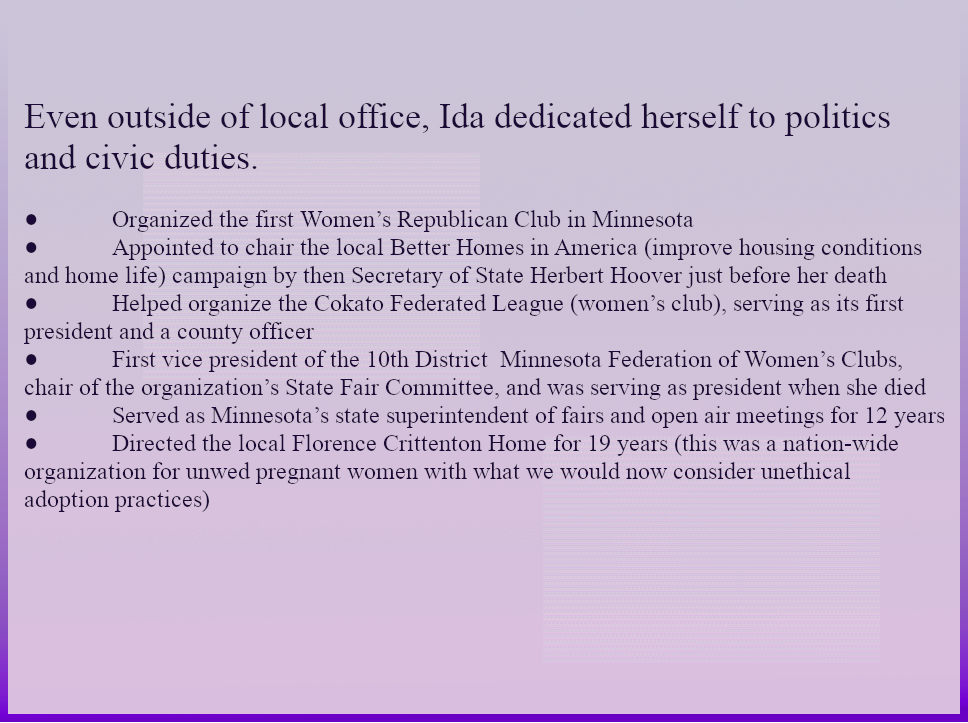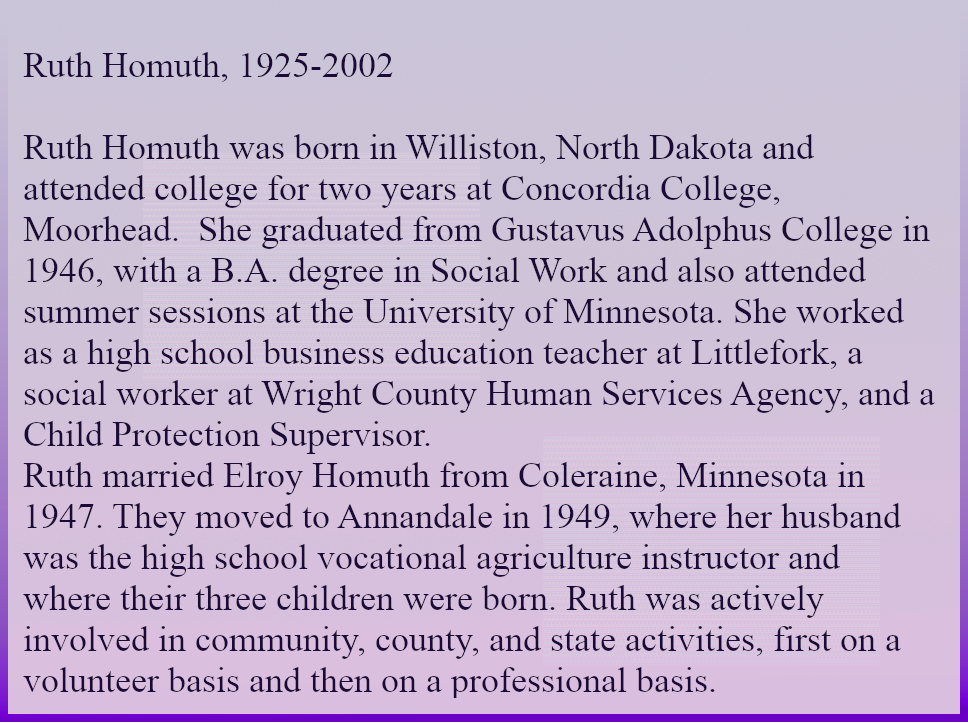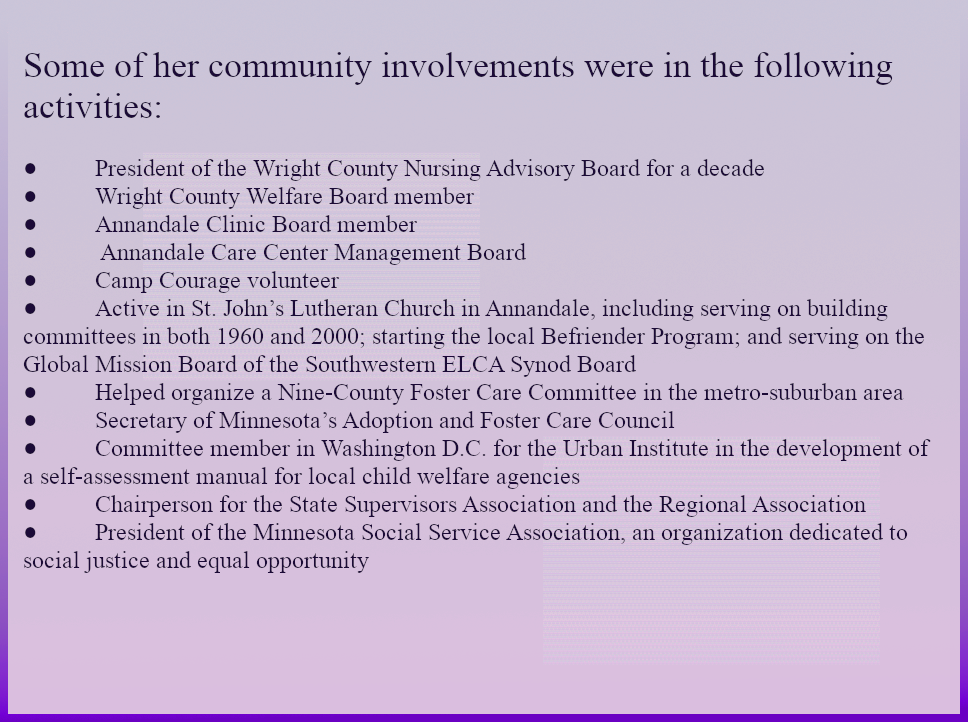Progress is Calling
Suffrage, Women, and Community in Wright County
“The vote is a power, a weapon of offense and defense, a prayer. Use it intelligently, conscientiously, prayerfully. Progress is calling to you to make no pause. Act!”
It has been just 100 years since women gained the right to vote in all state and federal elections. Wright County was founded in 1855, which means that generations of women – teachers, farmers, nurses, and more – did not have a voice in shaping their county, state, or nation. Despite this setback, many women worked to fight for progress in their homes, communities, and businesses before and after the passage of the 19th amendment.
The stories of women from Wright County illustrate the need for all of us to follow the call of progress, from voting in elections to actively participating in our communities. Let us add our stories to theirs and continue to make our county a place we can all take pride in.
Amendment XIX
The right of citizens of the United States to vote shall not be denied or abridged by the United States or by any state on account of sex.
Congress shall have power to enforce this article by appropriate legislation.
Suffrage in the United States
“Just being a woman isn’t enough anymore. I want to be a human being.”
Why did it take so long?
Though women had been fighting for their right to vote for over 70 years, they were not allowed equal suffrage until 1920. What took so long? The short answer is that many changes all gathered up to create a shift in social expectations.
● Americans became more accepting of women traveling and working outside the home.
● Other countries were passing suffrage laws as American women were fighting for the same rights.
● World War I and the Spanish Influenza epidemic both came to an end in 1919. These events gave a rebellious tinge to youth culture, who had faced death, loss, and fascism and wanted to live their lives to the fullest in the face of such fears.
It’s no coincidence that the long fight for women’s suffrage ended in 1920. It began a decade of massive social change that affected nearly every part of American life. From motion pictures with sound, increased access to automobiles and cameras, and space for more women in the workplace and in sports, almost everyone was better able to define their own lives.
Putting in the Work
Who helped pass the 19th Amendment granting women suffrage? How did they organize? What can we learn from them?
“Feminism has never been about getting a job for one woman… It’s not about a piece of the existing pie; there are too many of us for that. It’s about baking a new pie”
What was life like in Wright County around the time of the passage of the 19th Amendment?
What did people in Wright County think about women’s suffrage?
Peruse a collection of articles from Wright County newspapers to see the activities and opinions of people as they processed what it meant for women to vote.
A timeline of voting rights in the United States of America
“It was we, the people; not we, the white male citizens; nor yet we, the male citizens; but we, the whole people, who formed the Union.”
The Equal Rights Amendment
"Equality of rights under the law shall not be denied or abridged by the United States or by any state on account of sex."
Wright County Votes
Women and other disenfranchised groups fought for the right to vote because they felt it was a key part of citizenship and meant that their voices would be heard at all levels of government.
Now, nearly every adult can vote. But do we exercise that right?
The graphs below show the population, number of registered voters, and number of actual voters for the 2018 state general election for each city and township in Wright County. As the graphs illustrate, not all registered voters actually vote when the time comes.
“People often say, with pride, ‘I’m not interested in politics.’ They might as well say, ‘I’m not interested in my standard of living, my health, my job, my rights, my freedoms, my future or any future.’”
Women of Wright County
From the WCHS Women of Wright County book, highlighting here women who made political and civic impacts on our community

